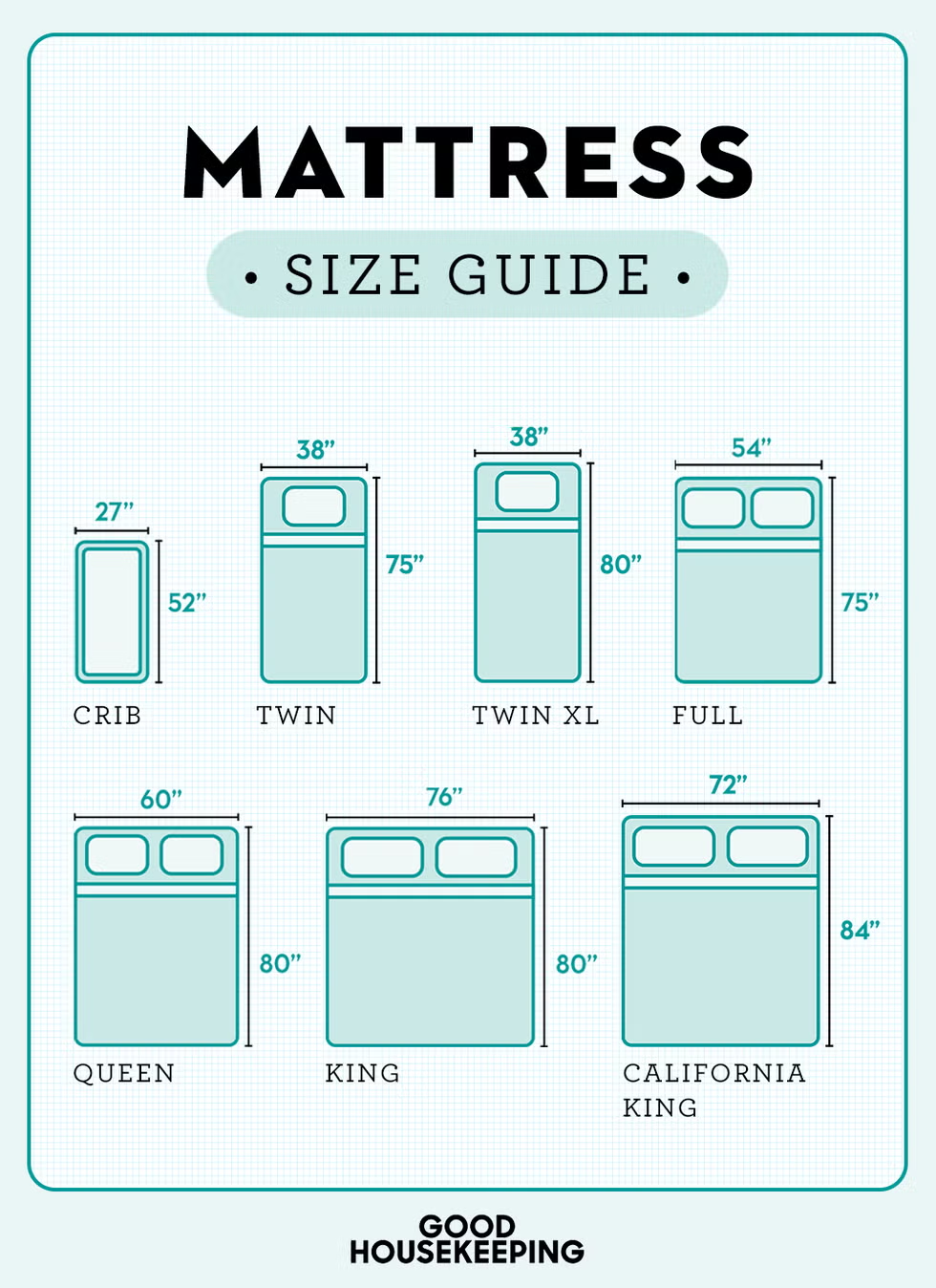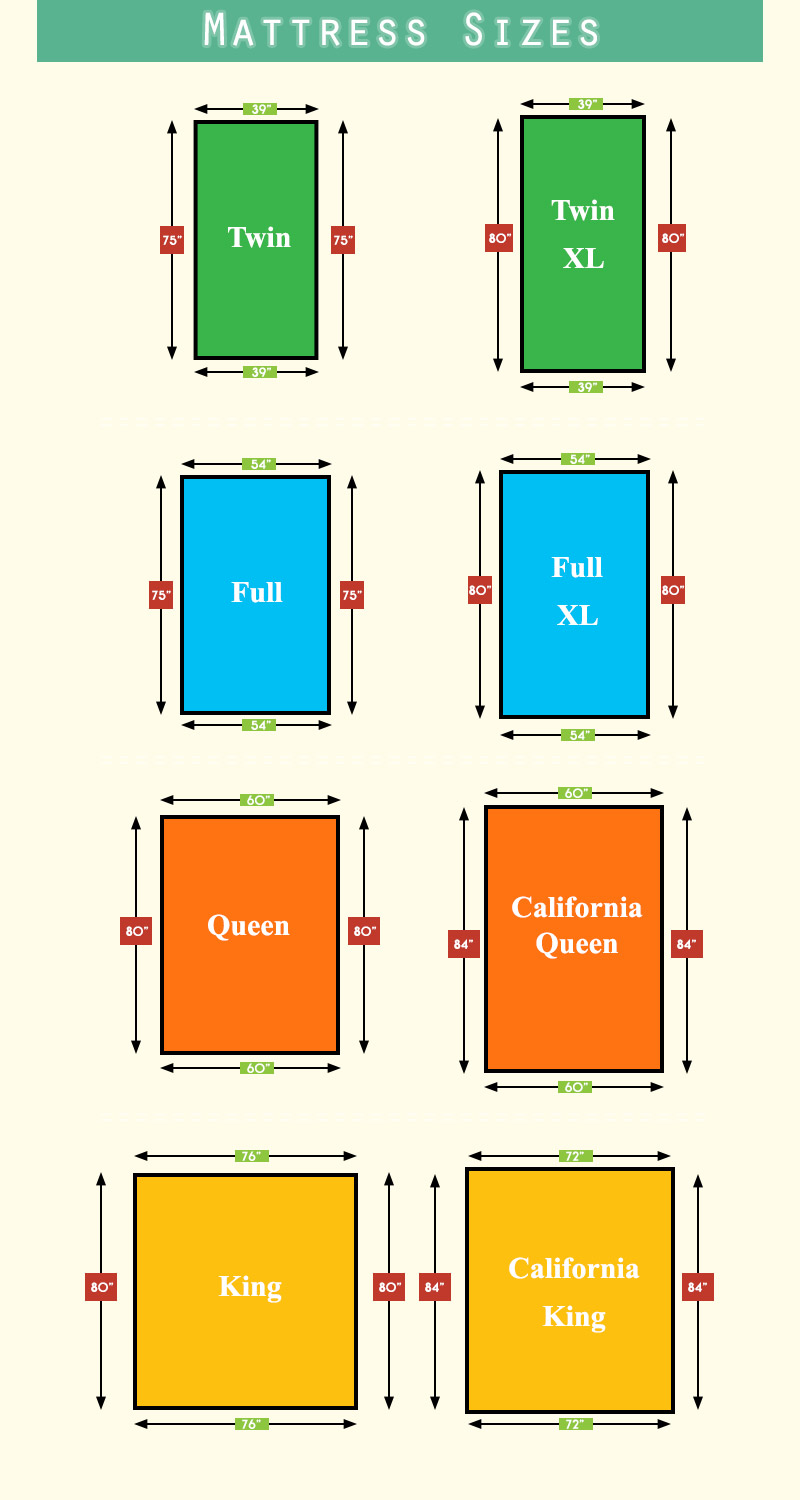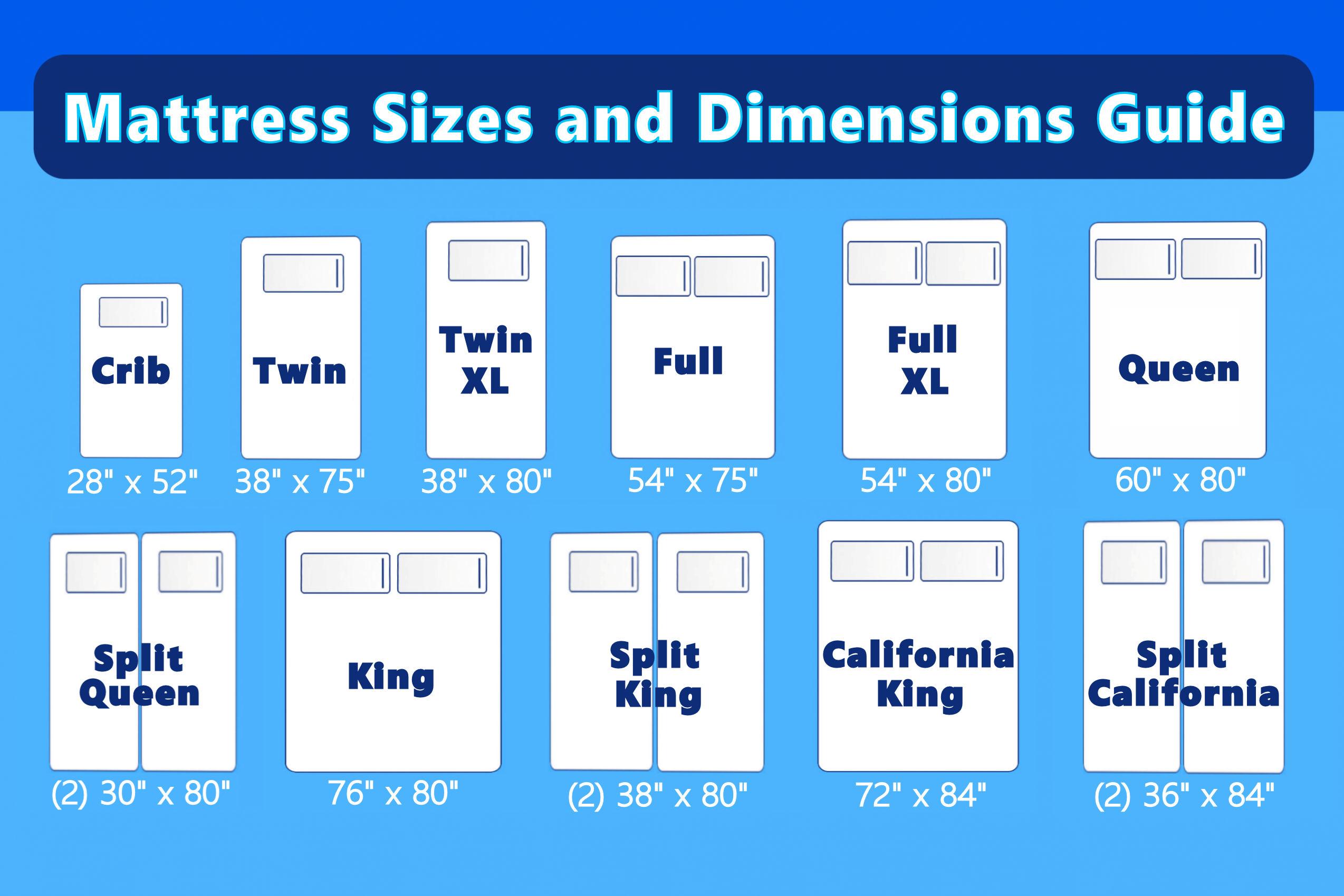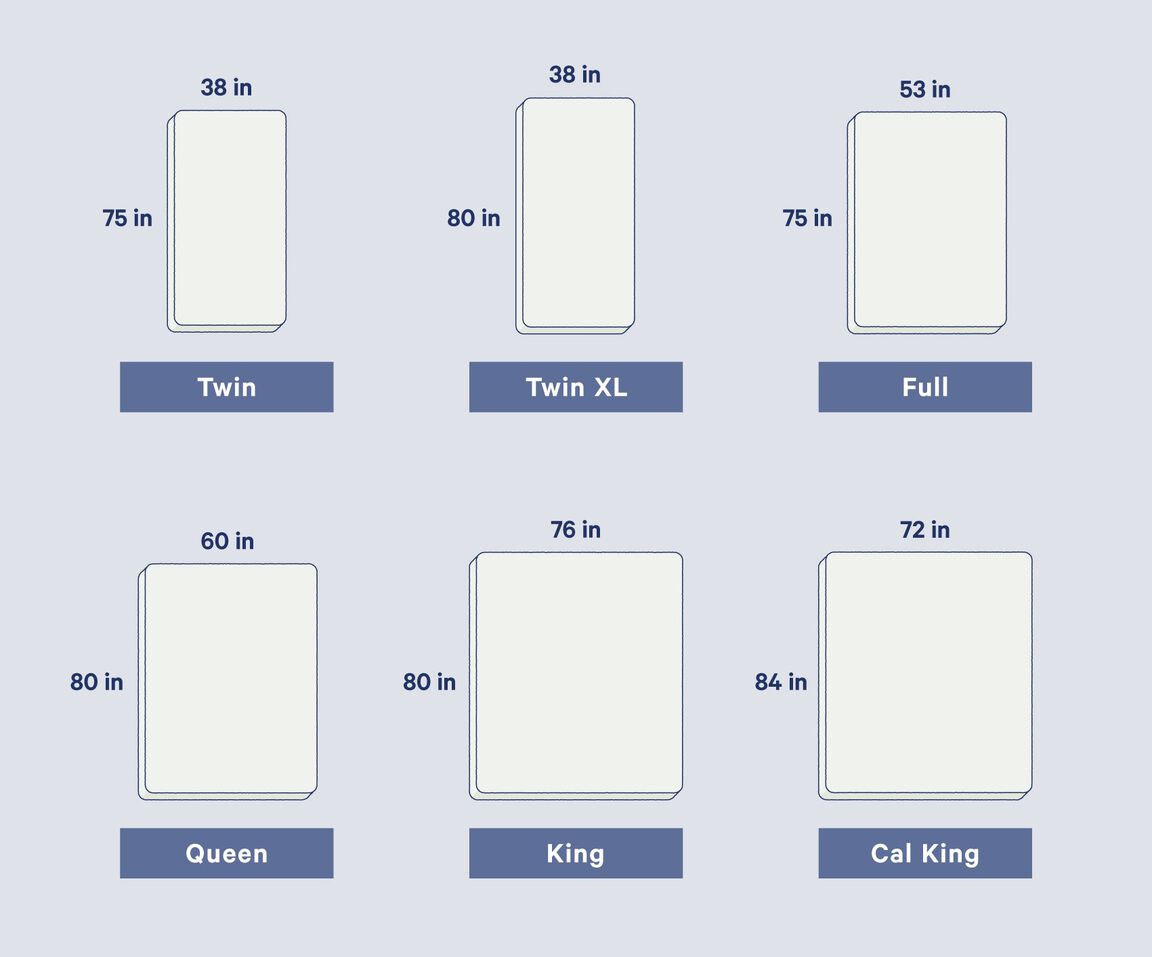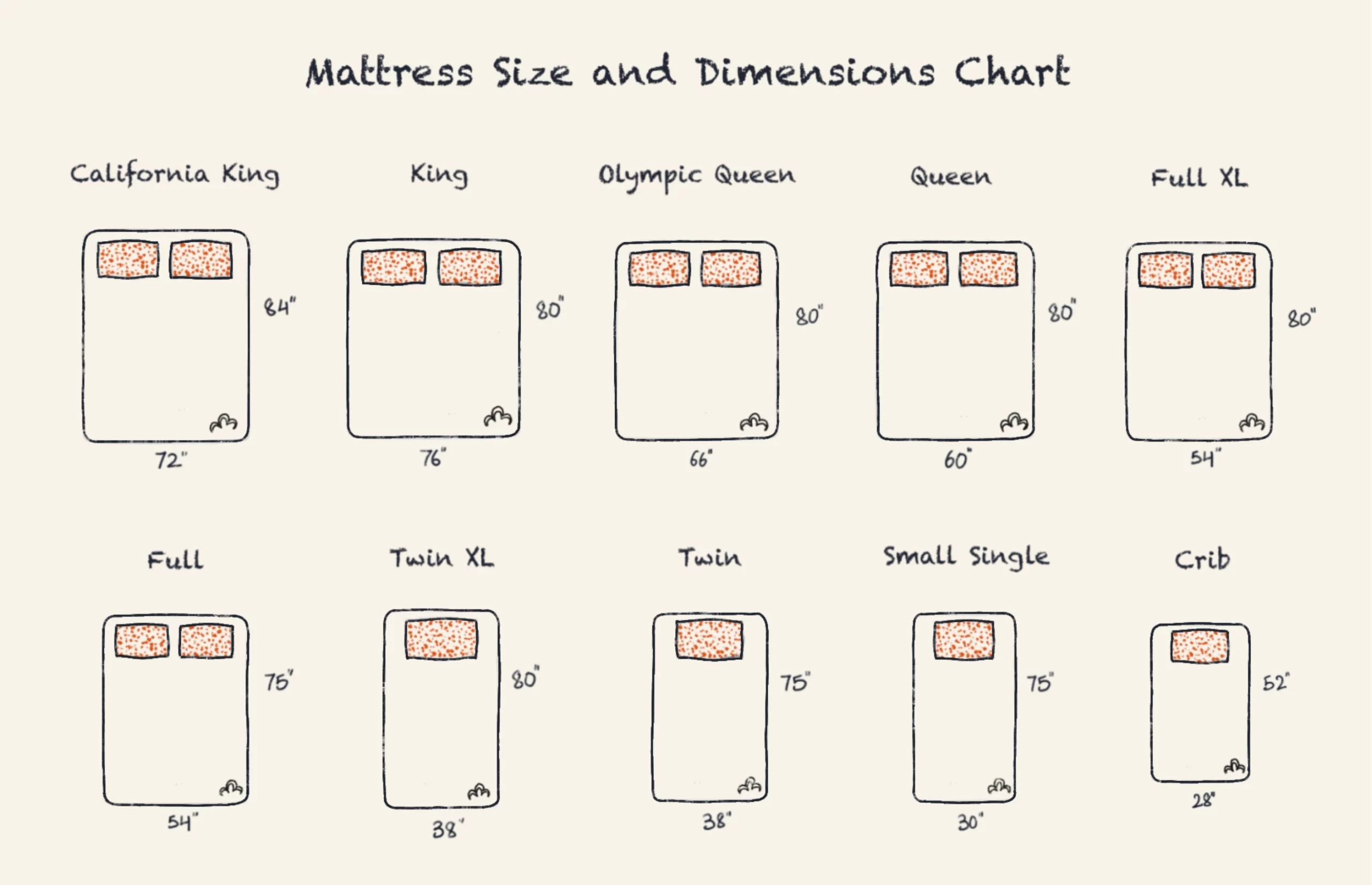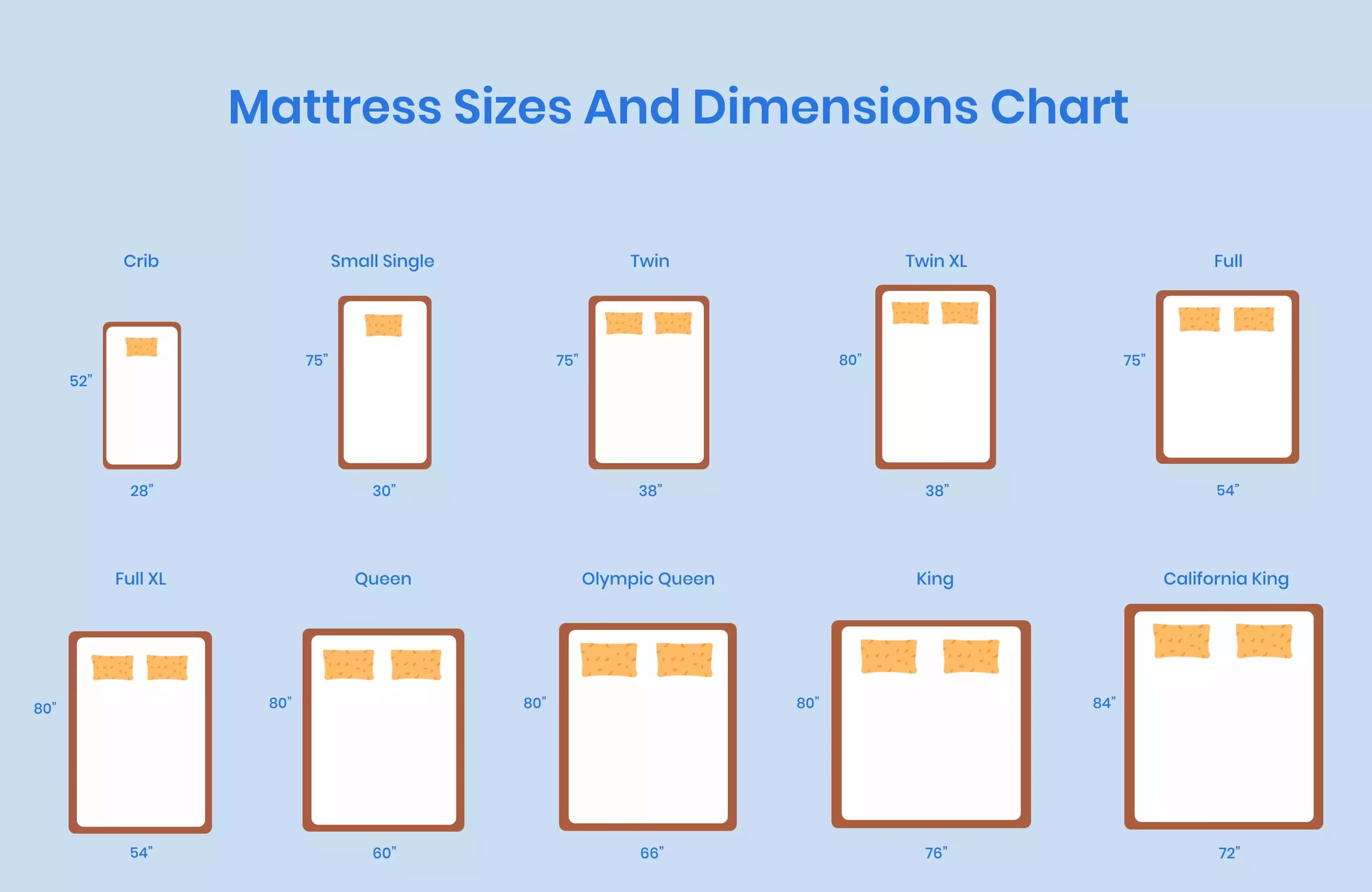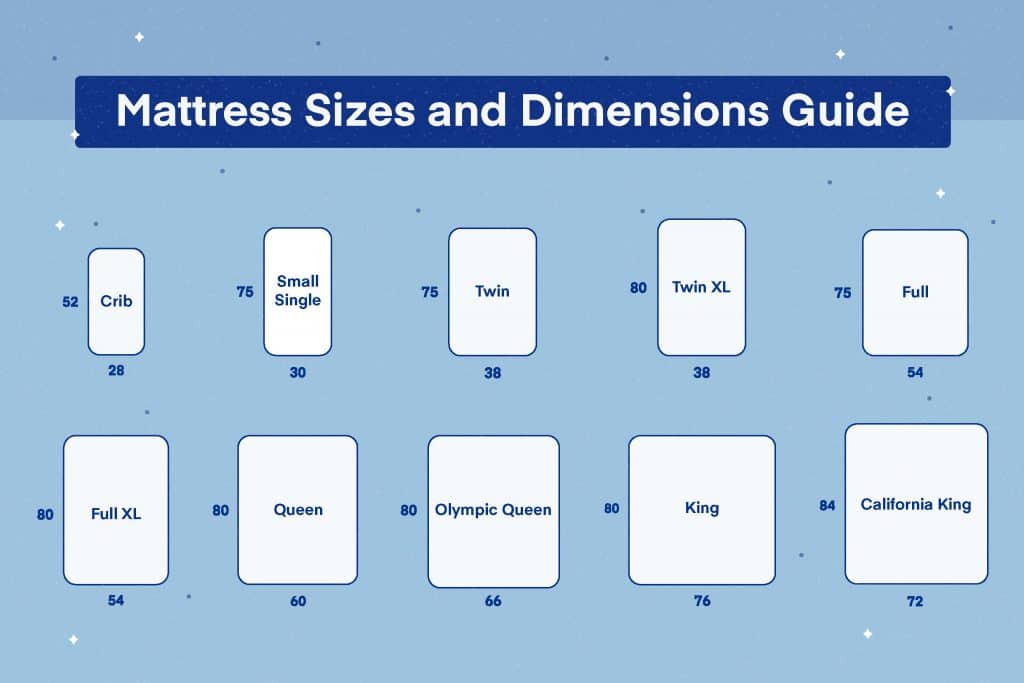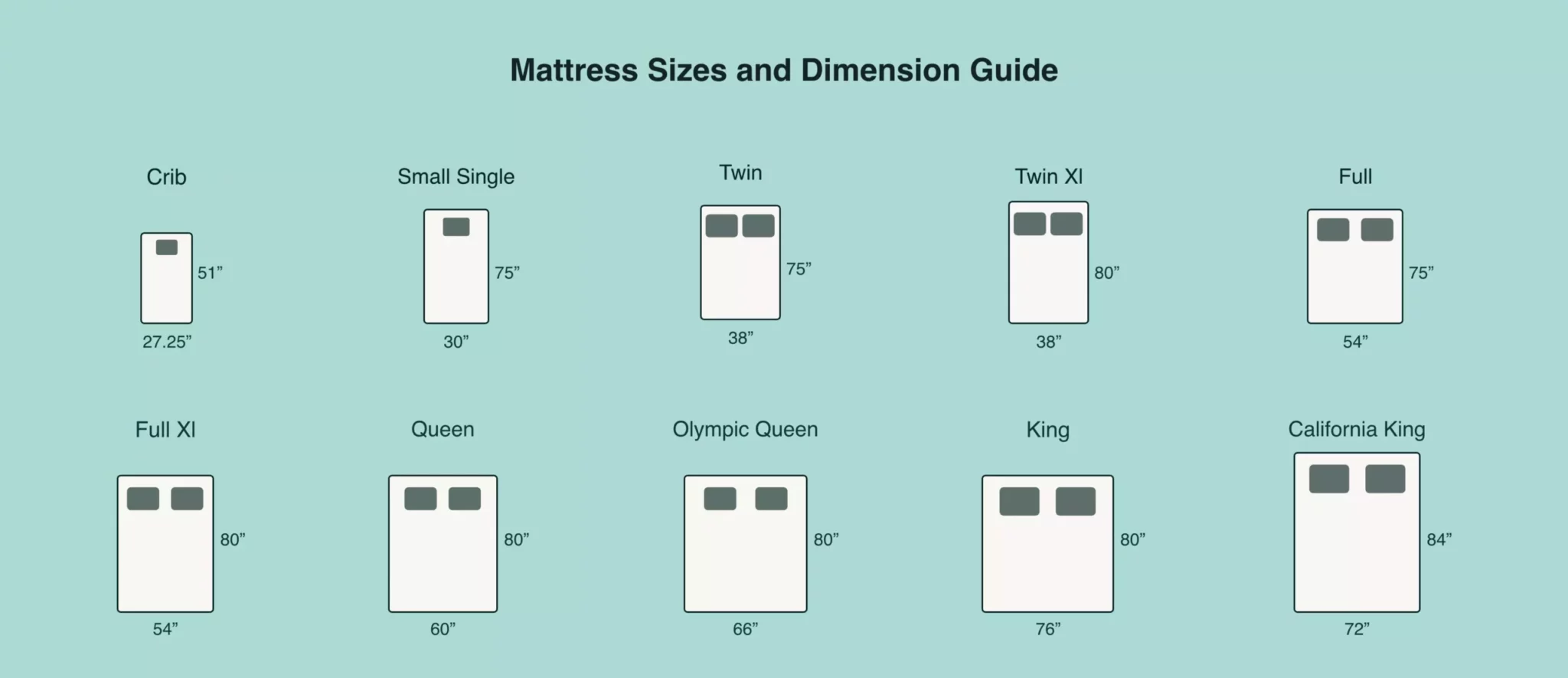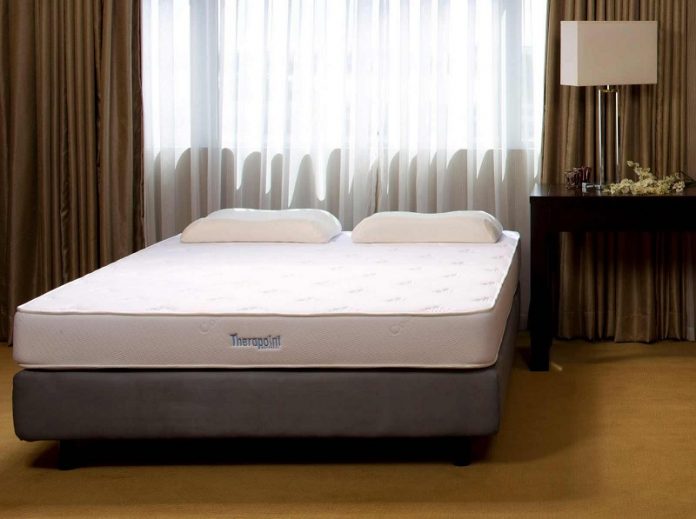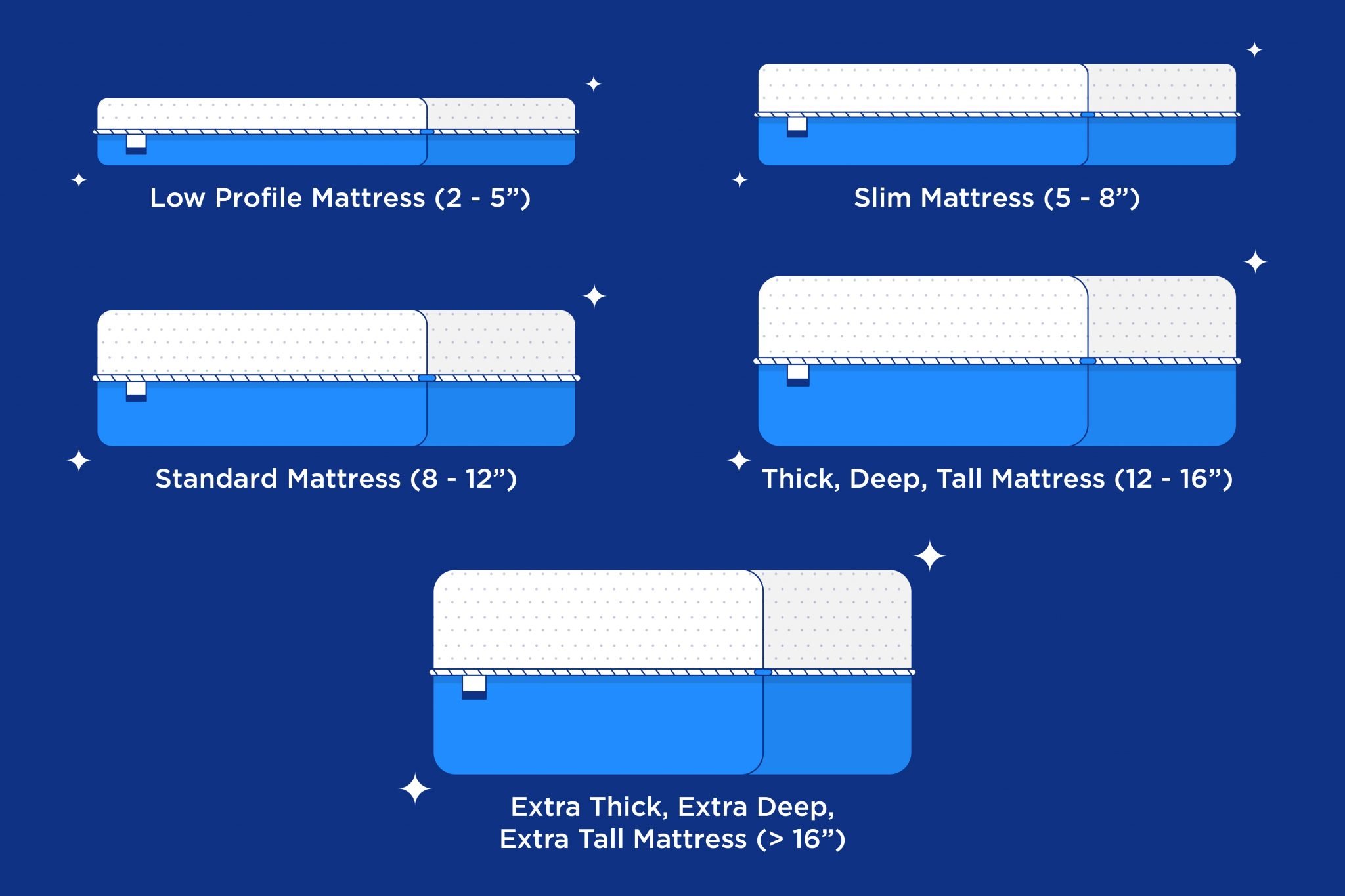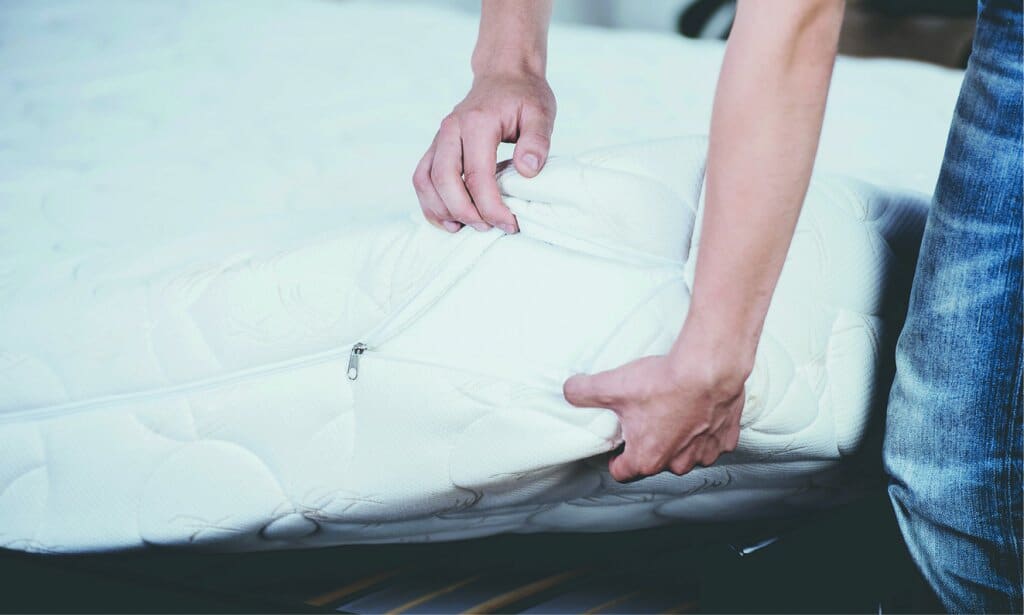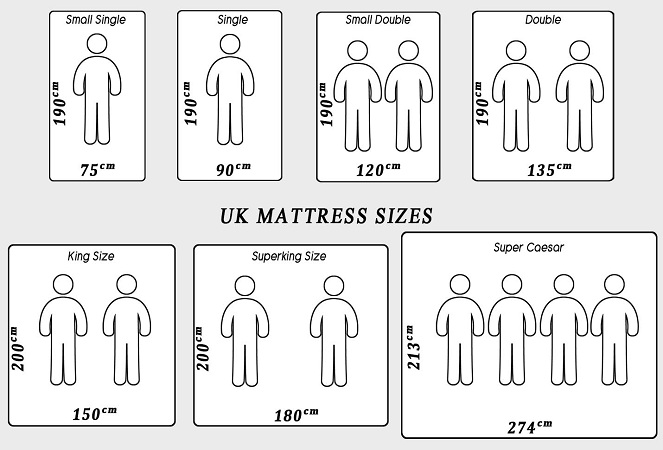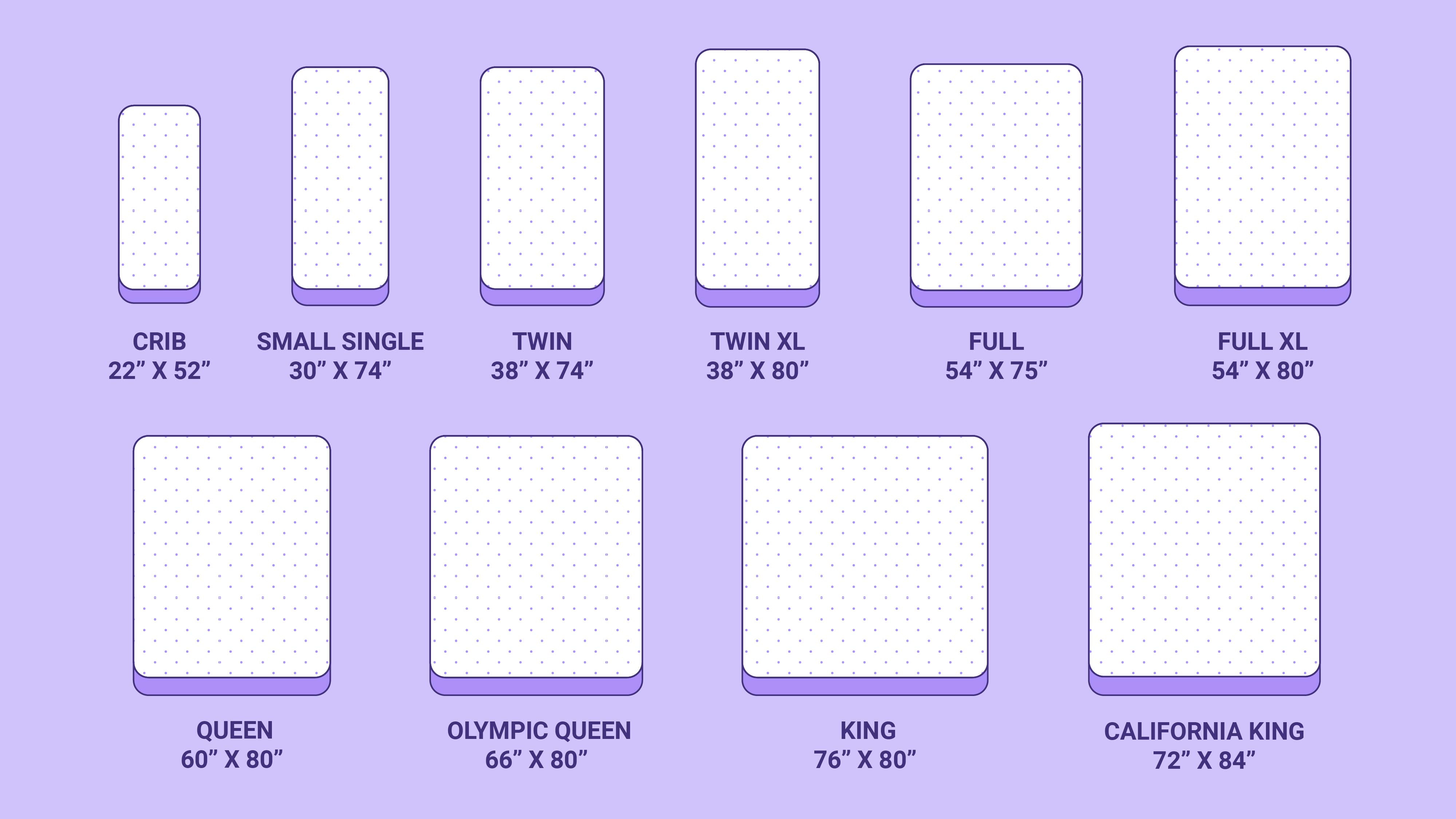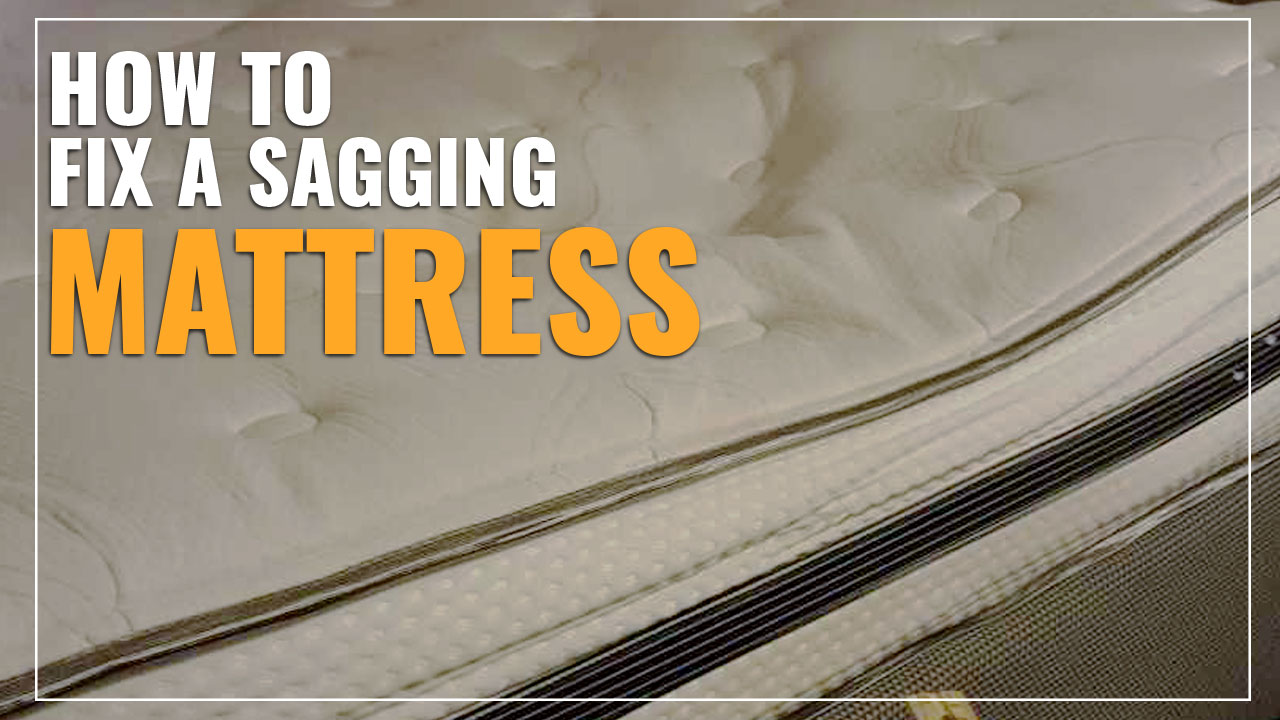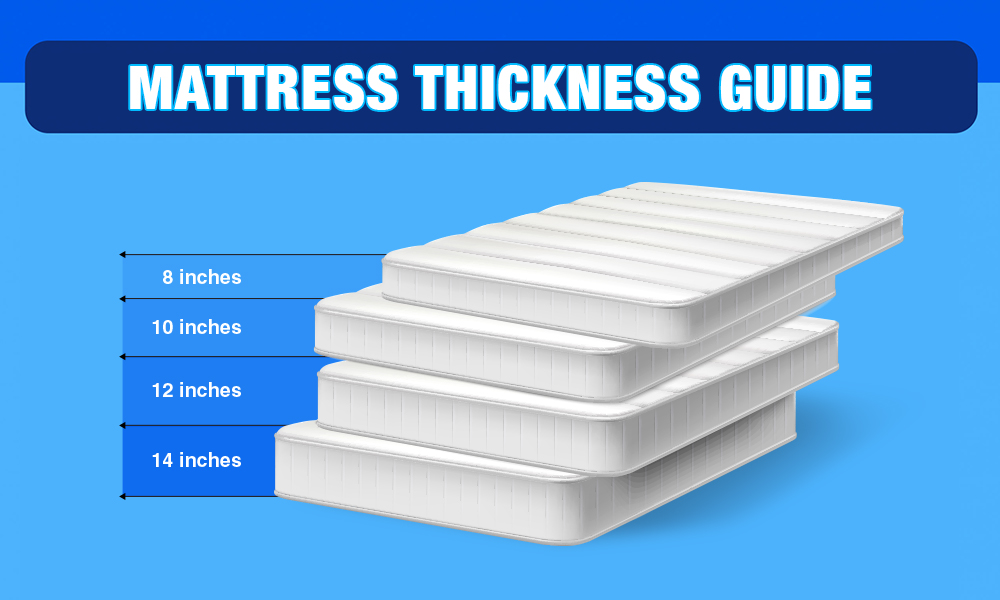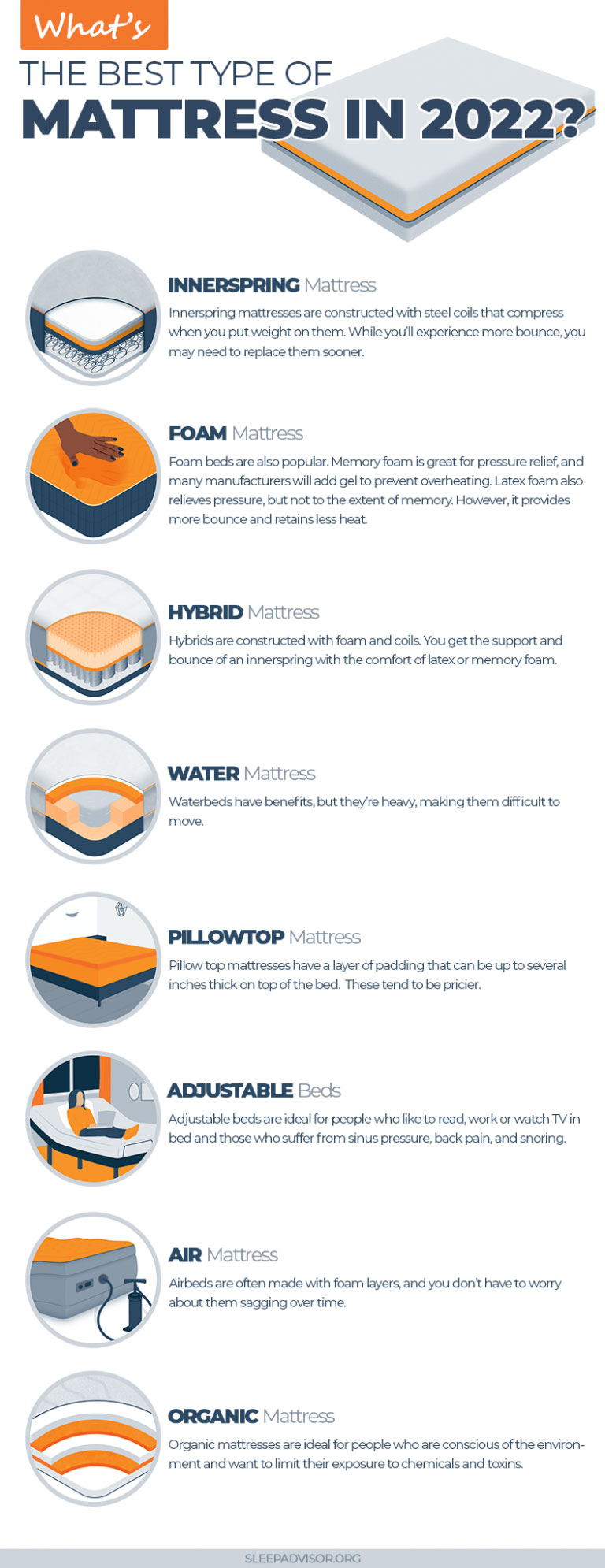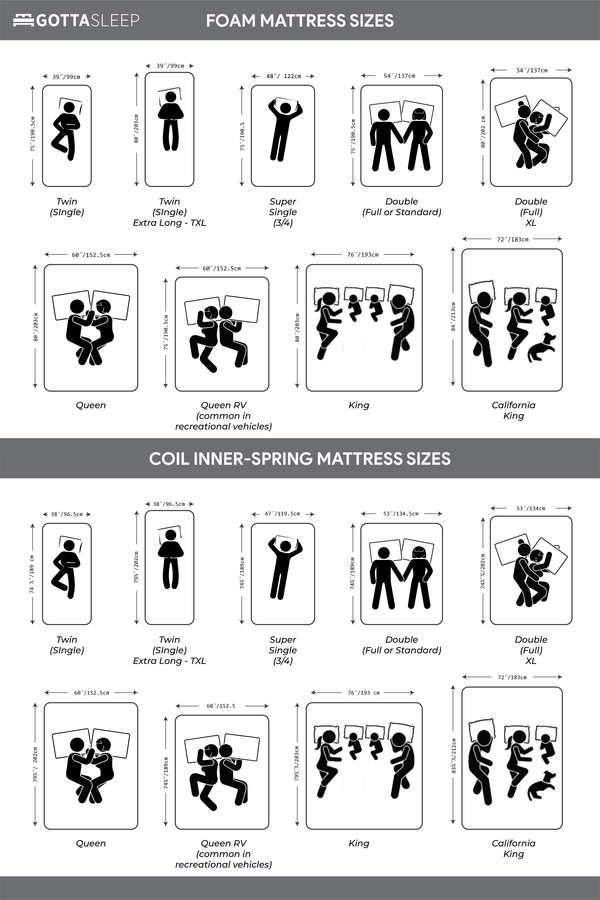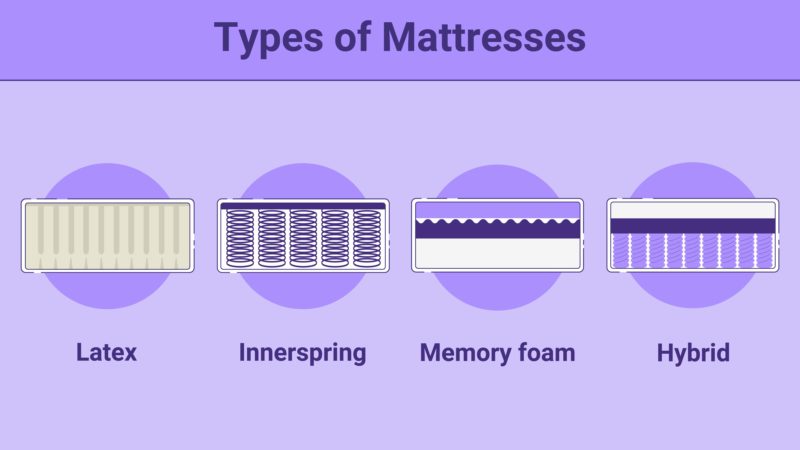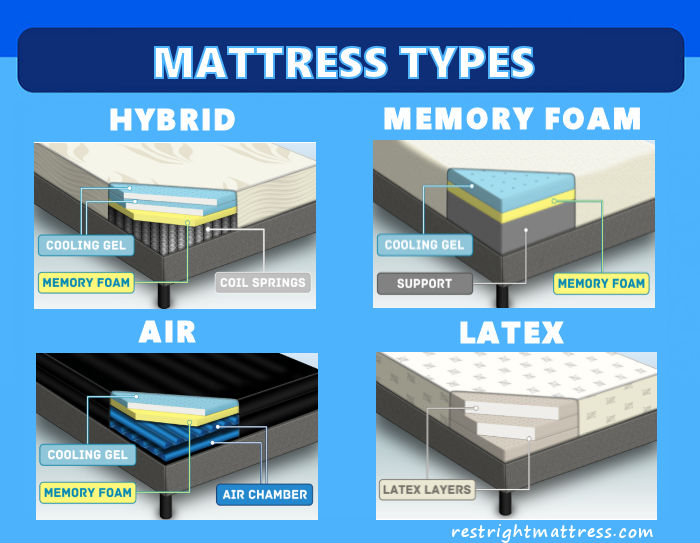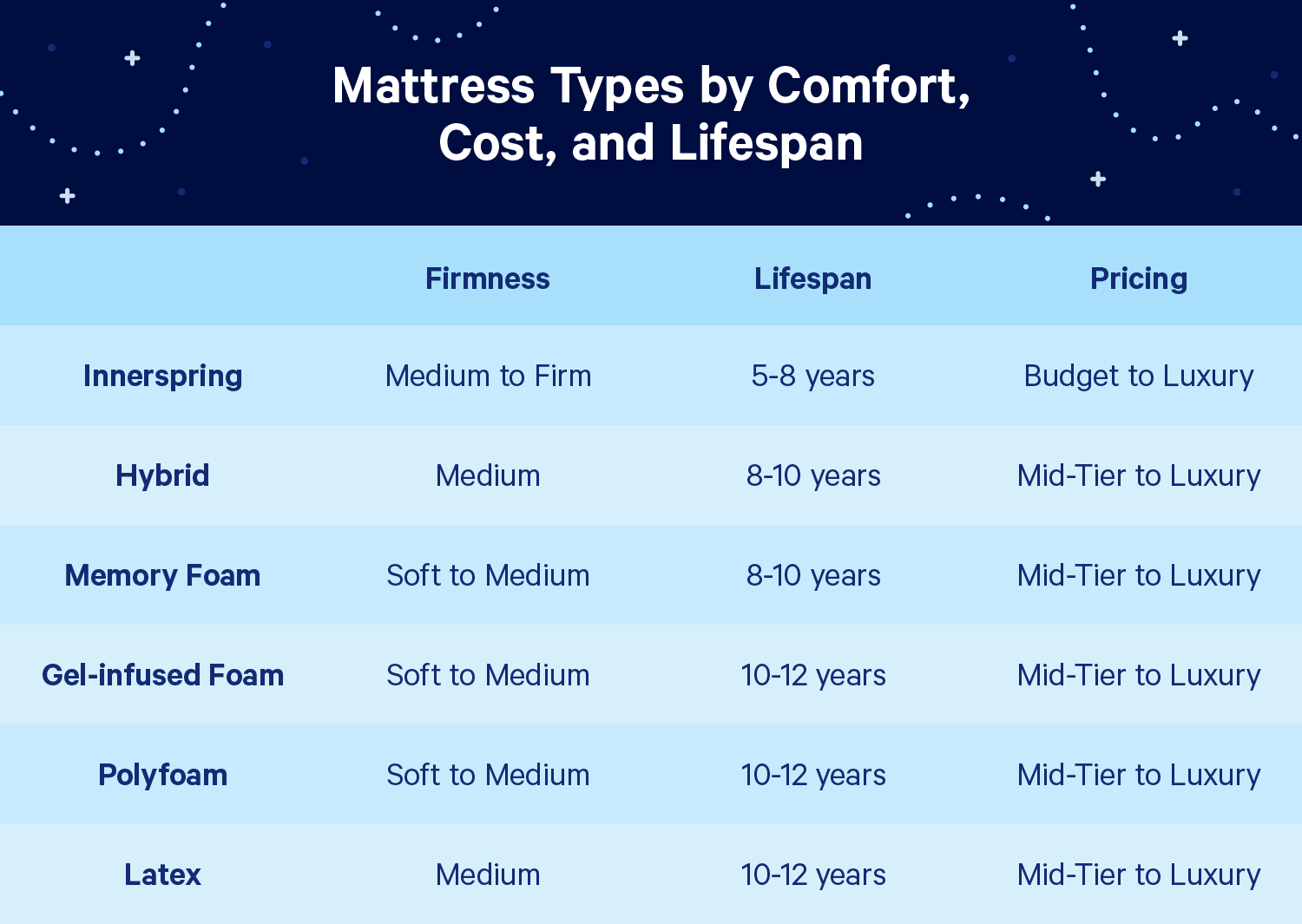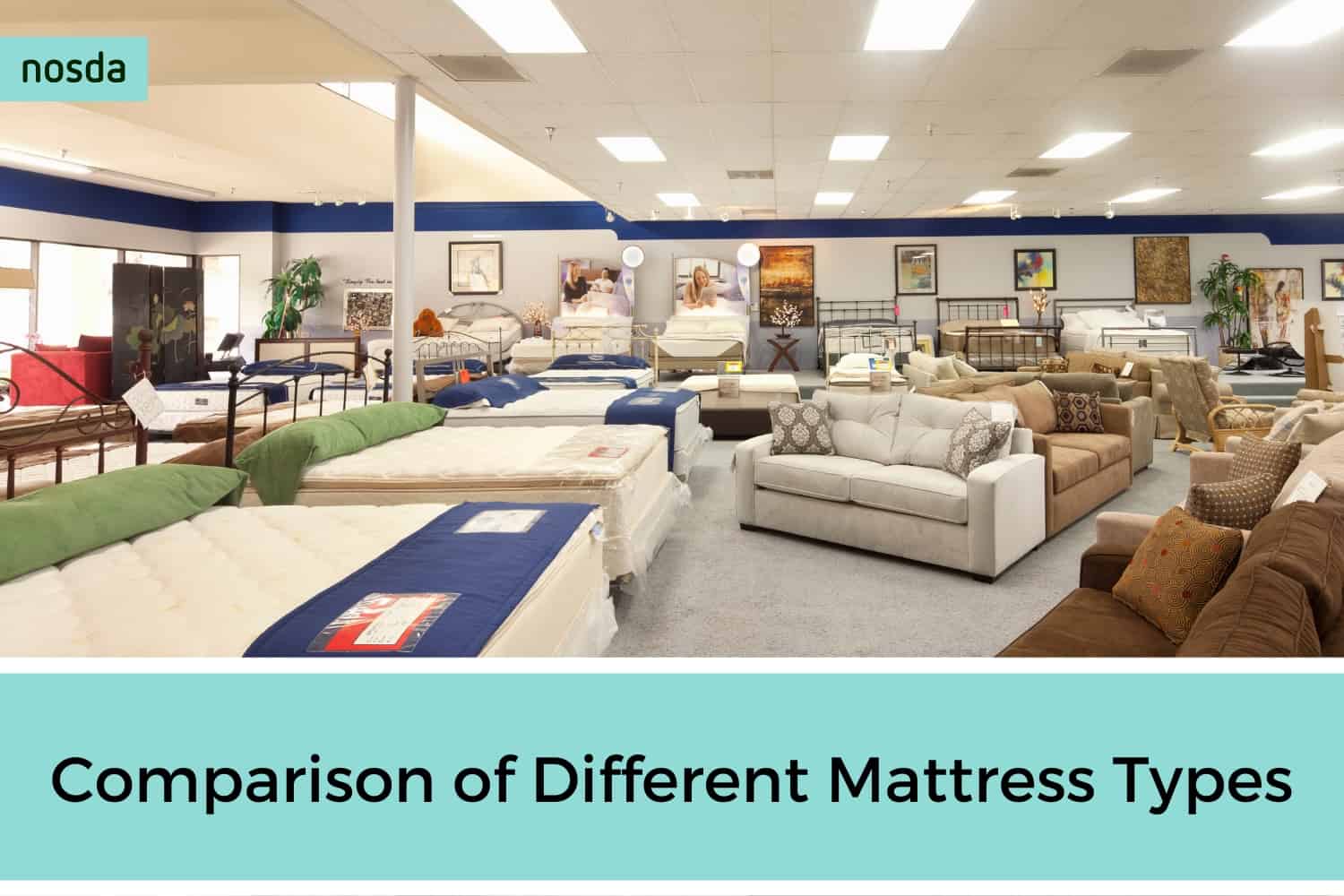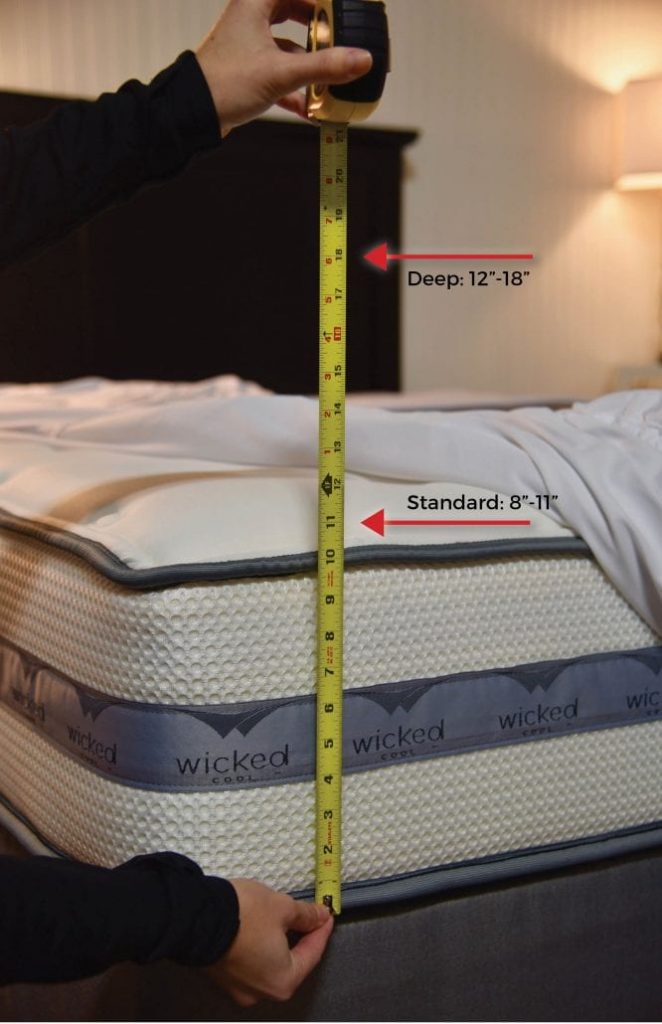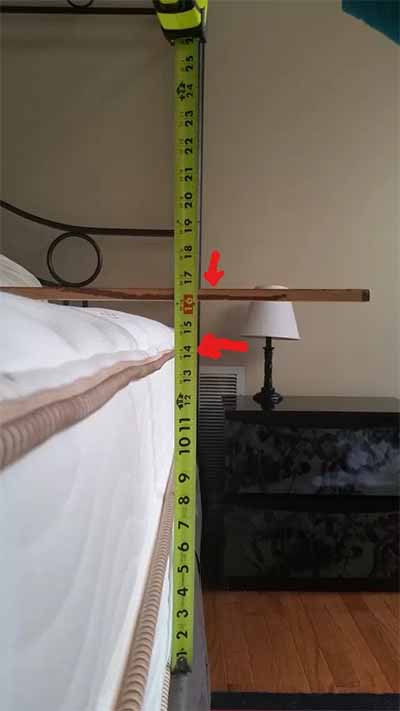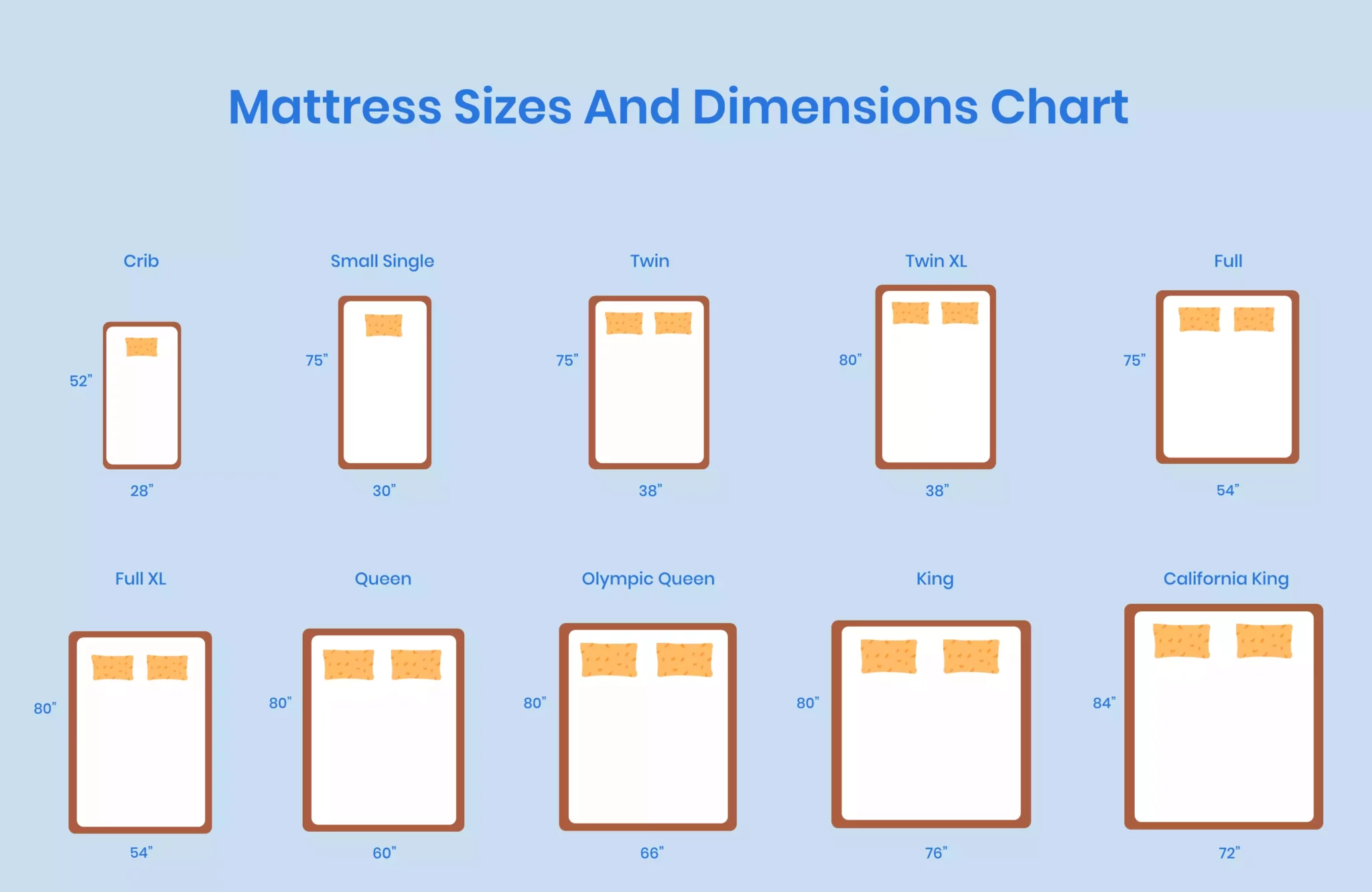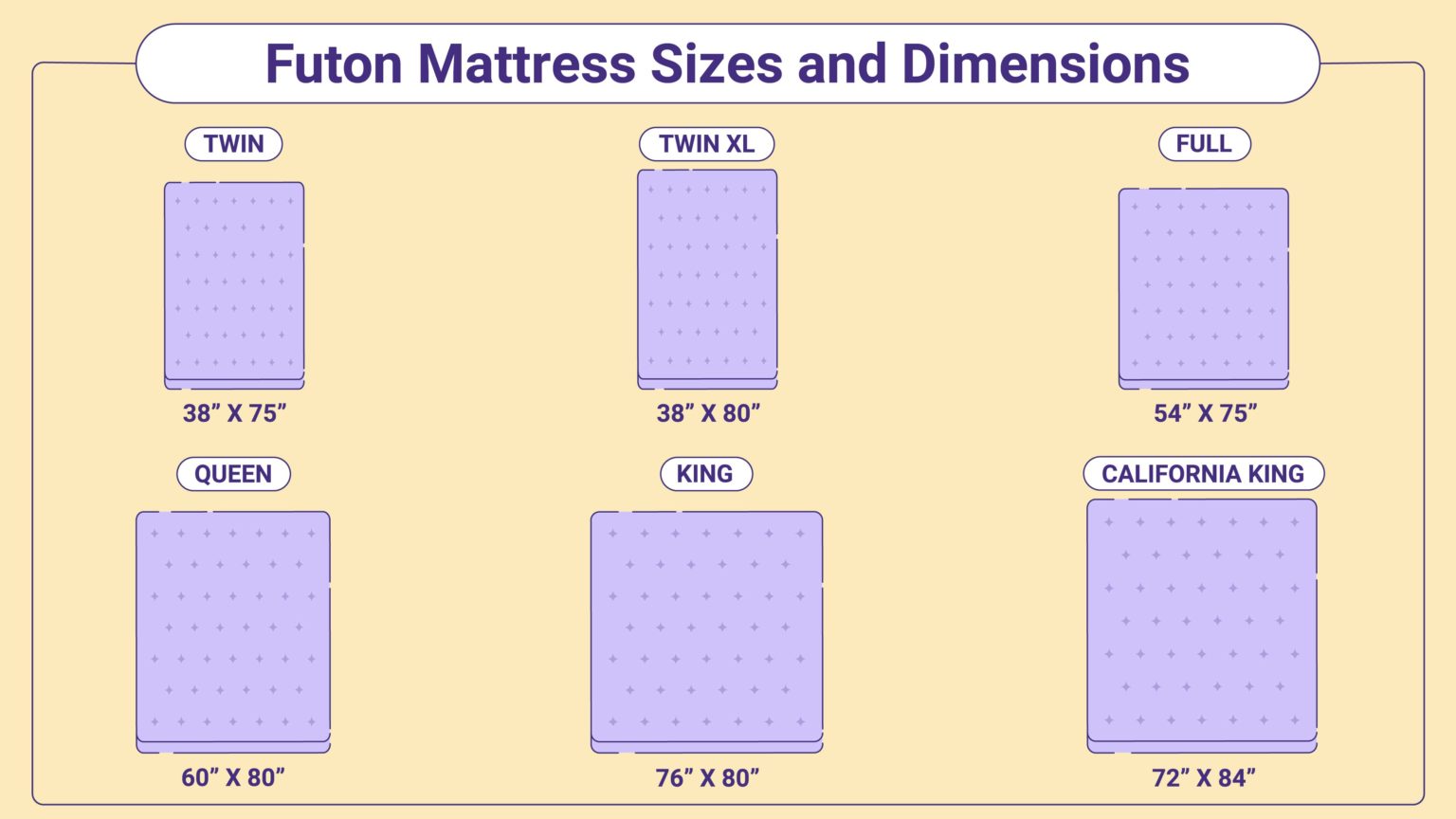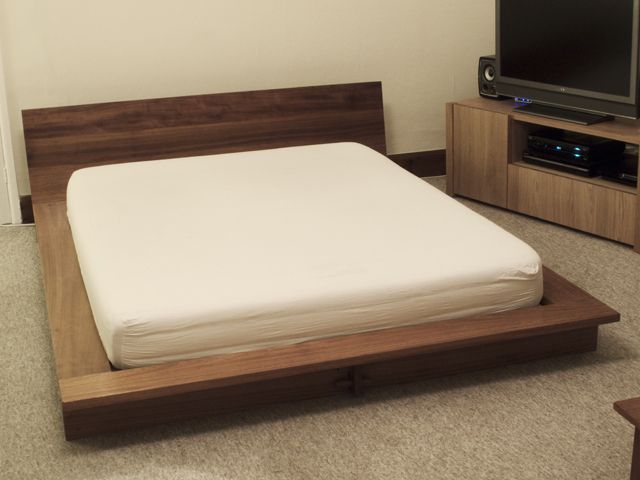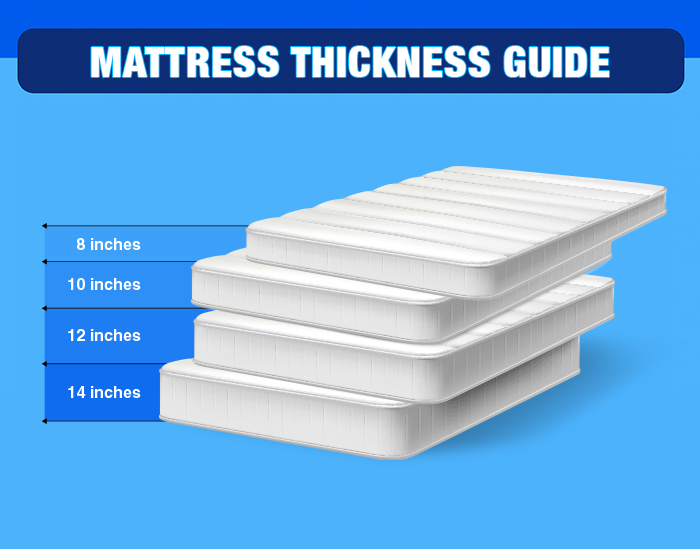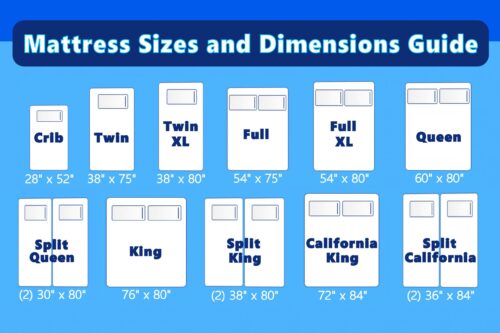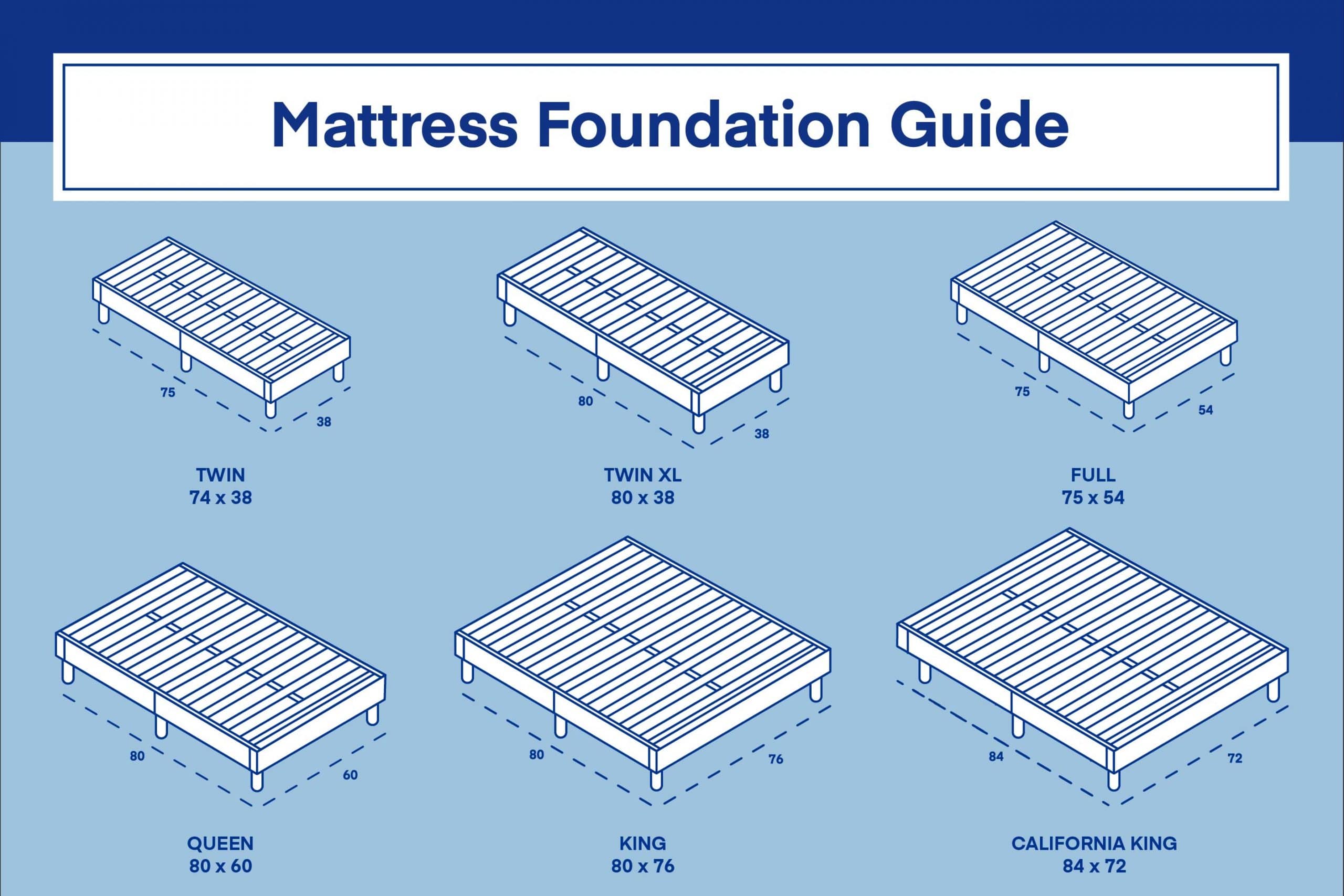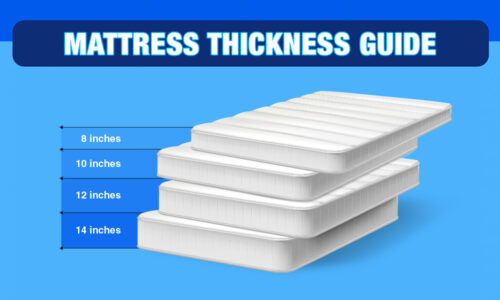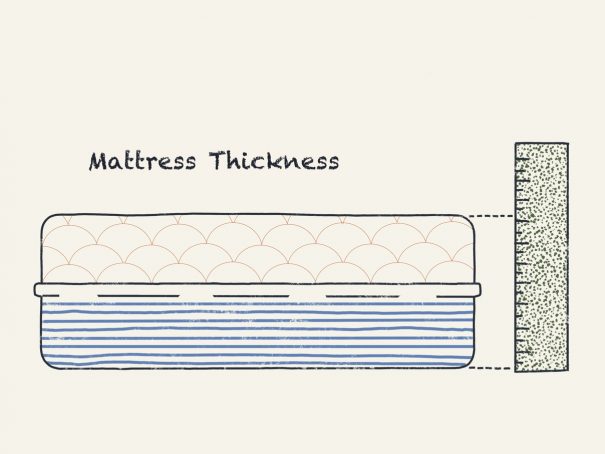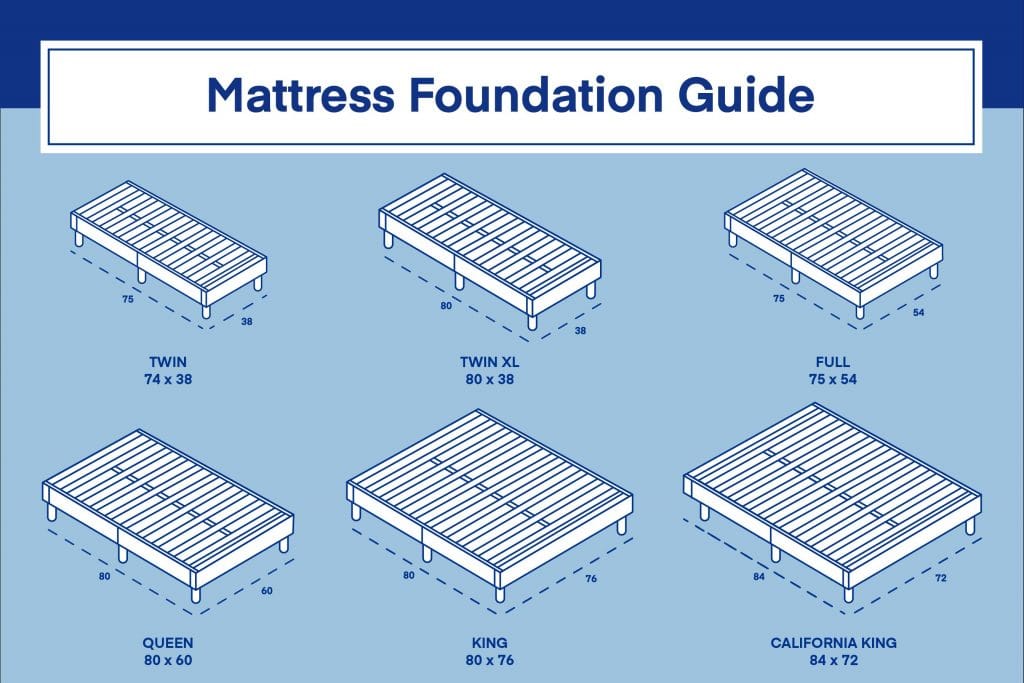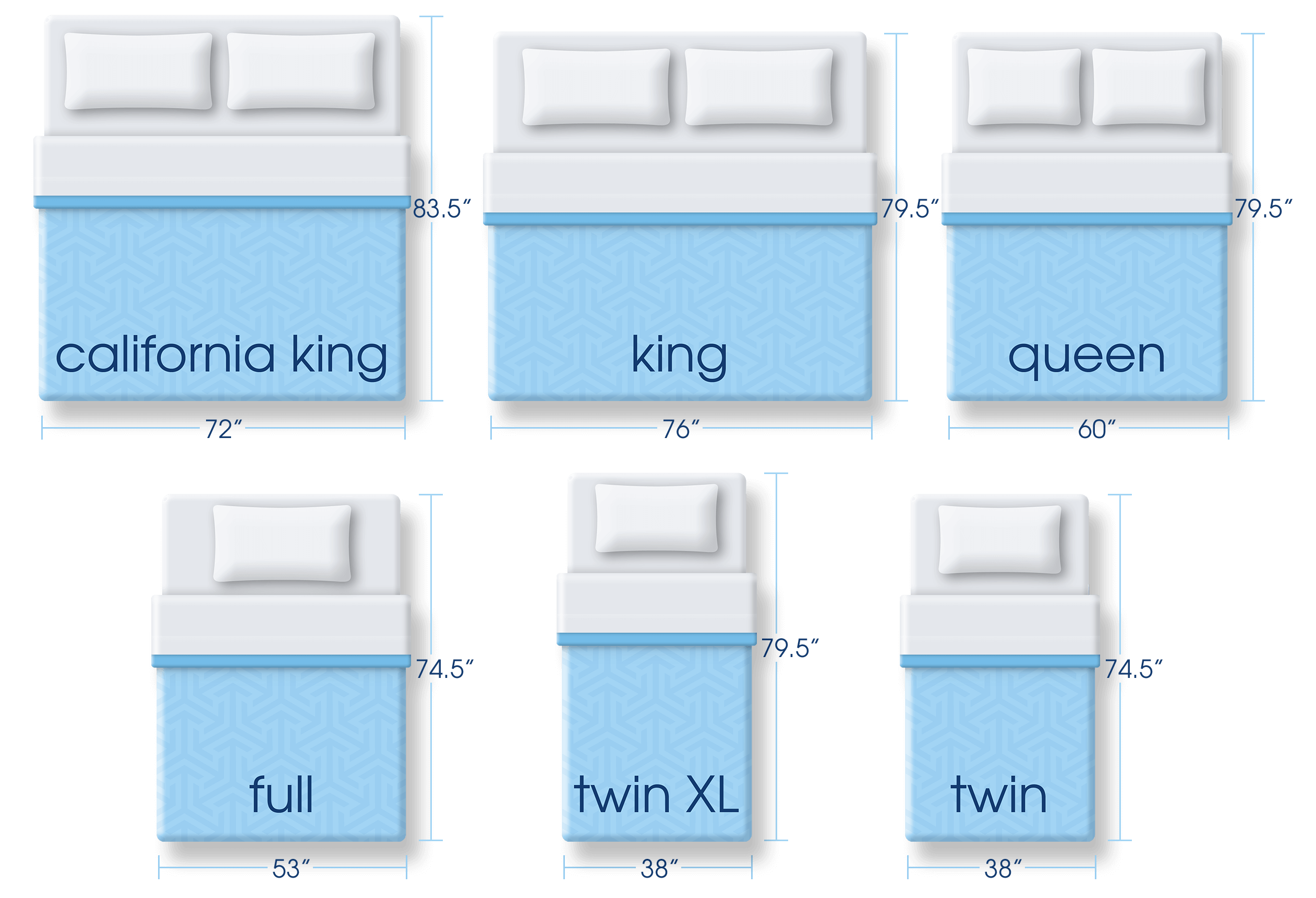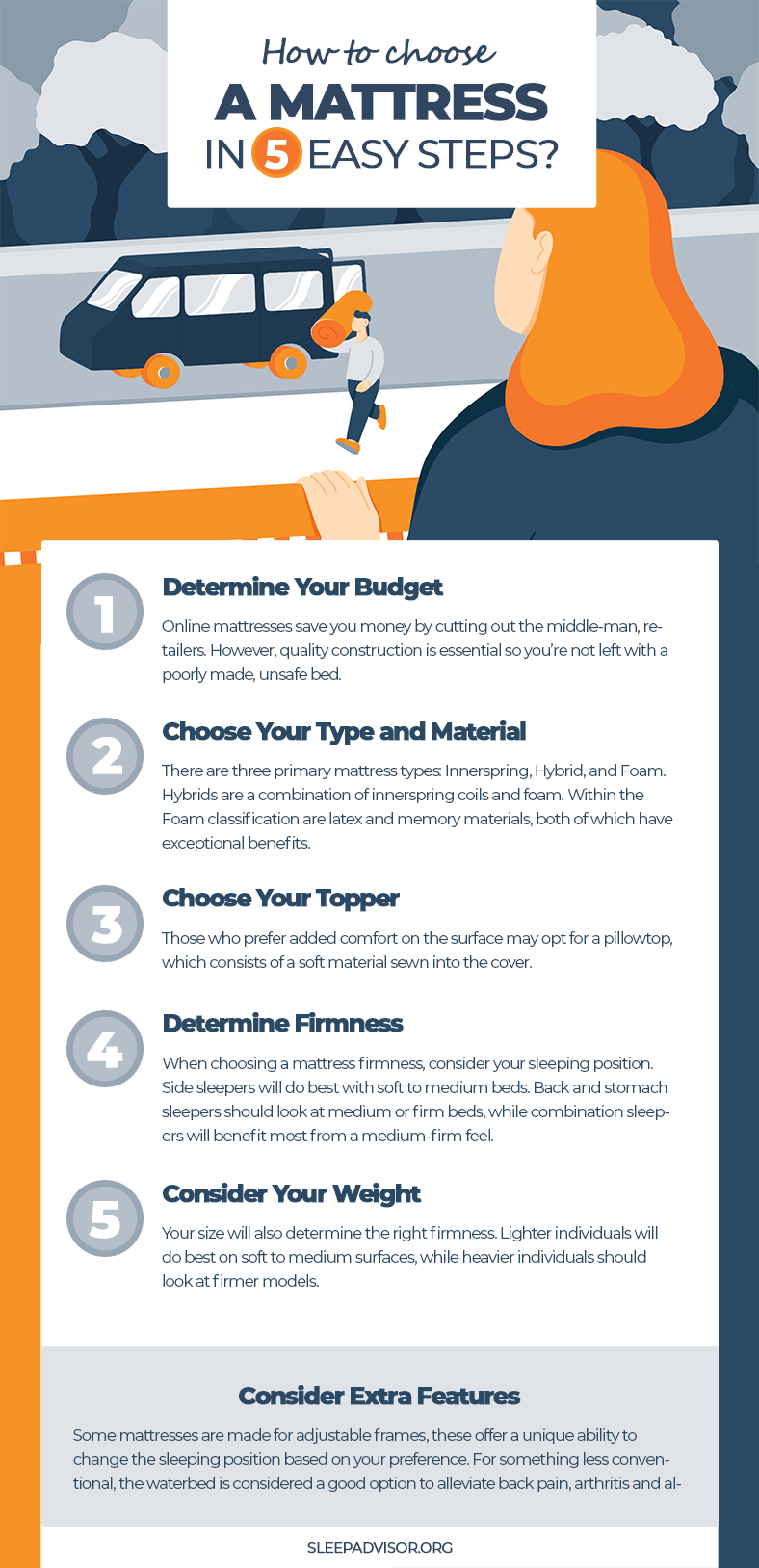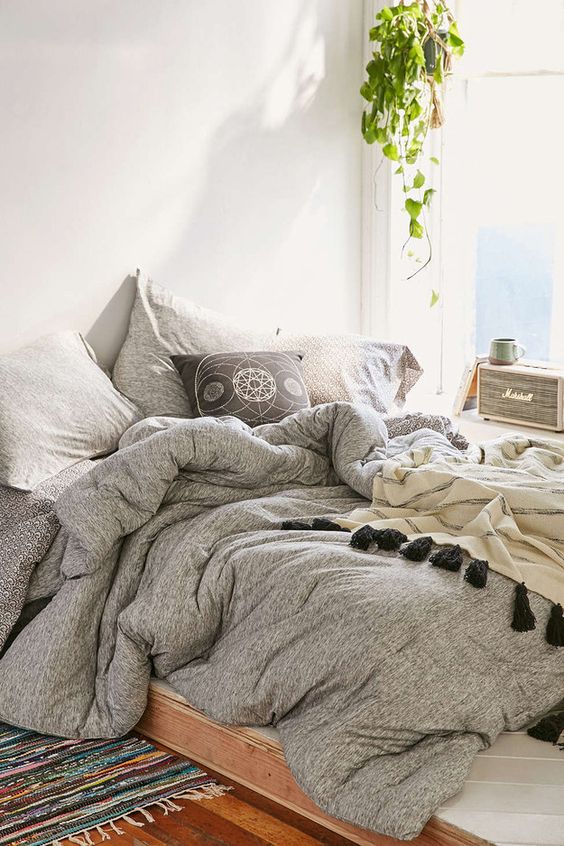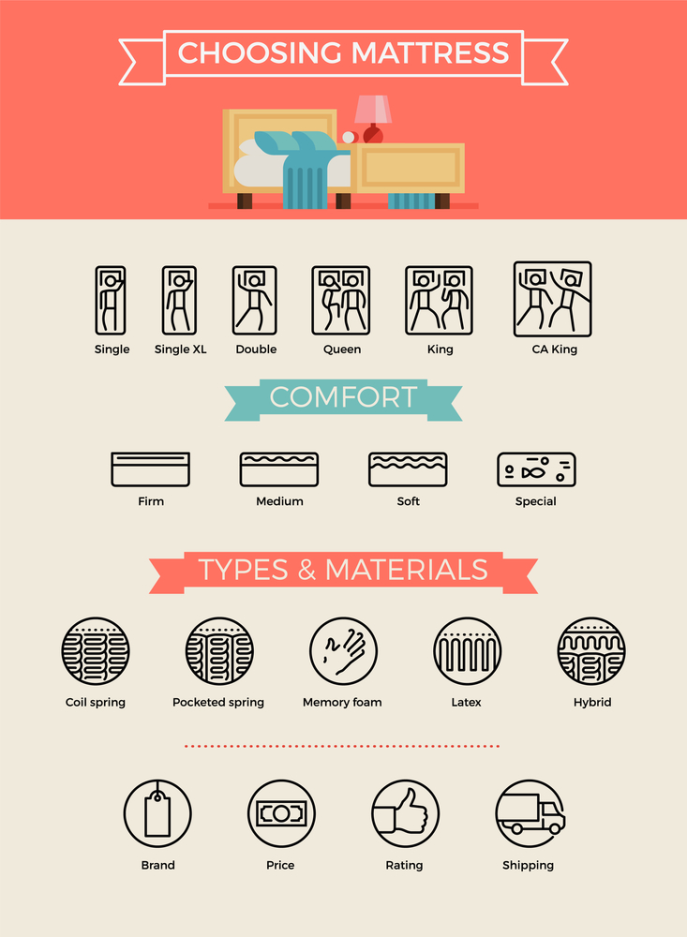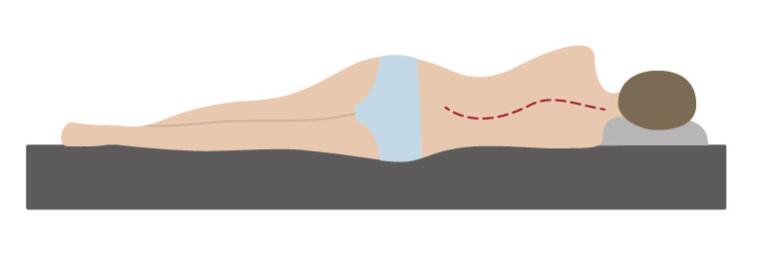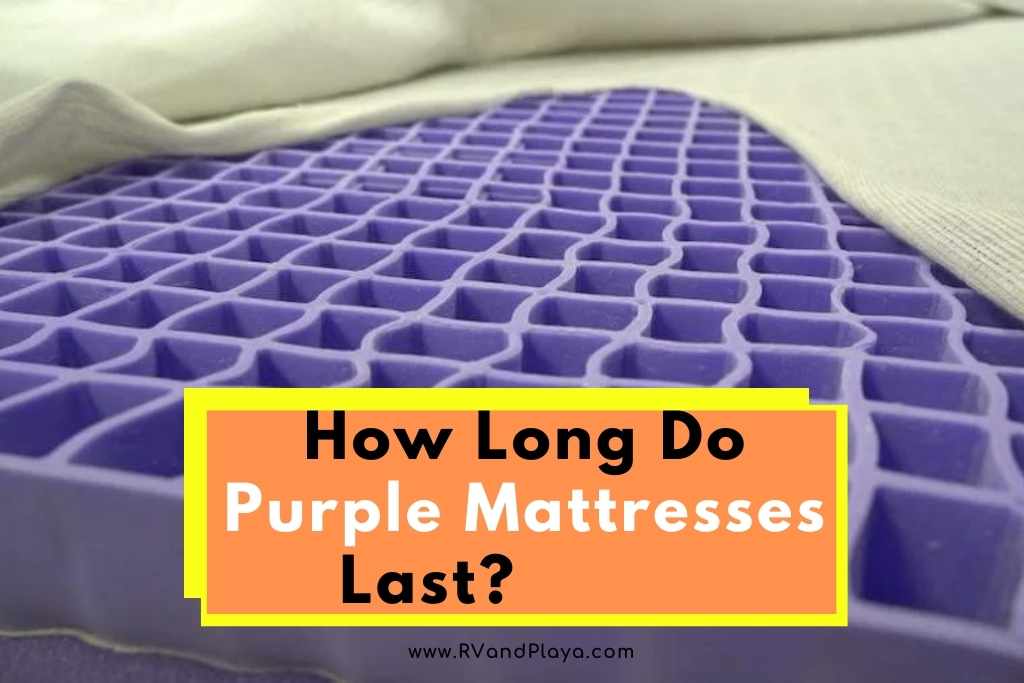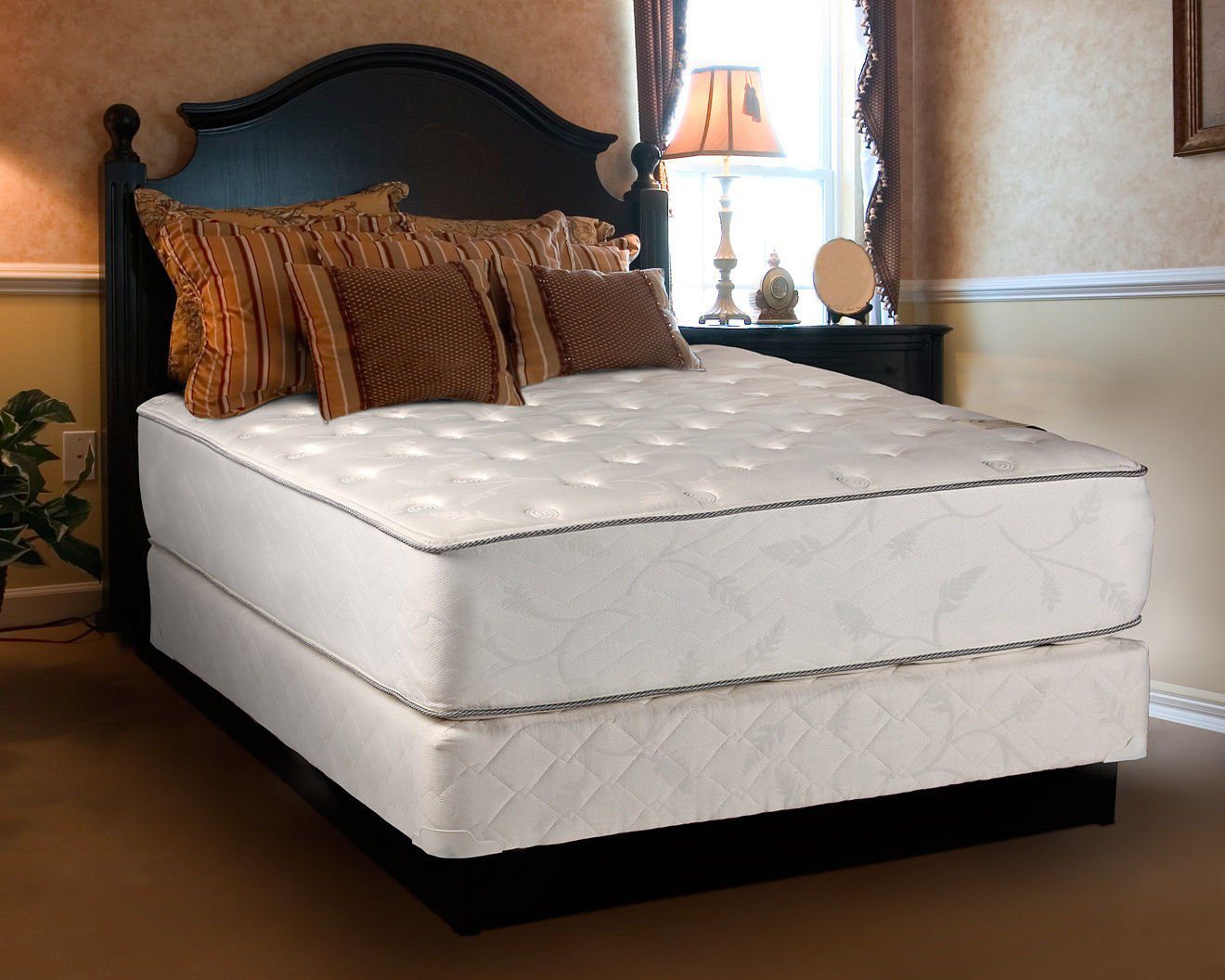If you're in the market for a new mattress, one of the first things you need to consider is the size and dimensions. The size of your mattress will not only affect the amount of space it takes up in your room, but also the comfort and support it provides for your body. Standard mattress sizes range from twin to California king, with each size offering its own unique benefits. For single sleepers or those with limited space, a twin or twin XL mattress may be the perfect fit. These mattresses are typically 38 inches wide by 75 or 80 inches long, respectively. They are also a great option for children or young adults transitioning to their first adult-sized bed. If you need a little more room to spread out, a full or double mattress may be a better choice. These mattresses are 54 inches wide by 75 inches long, making them a bit more spacious than a twin. They are also a good option for couples who don't mind snuggling up close at night. For couples who prefer a bit more room, a queen mattress may be the way to go. Measuring 60 inches wide by 80 inches long, this mattress size is a popular choice for master bedrooms. It can comfortably accommodate two people without taking up too much space. For those who want the ultimate in space and luxury, a king or California king mattress may be the answer. These mattresses are 76 or 72 inches wide, respectively, and 80 inches long. They are perfect for couples who want plenty of room to spread out, or for taller individuals who need extra legroom.1. Standard Mattress Sizes and Dimensions
While knowing the standard sizes of mattresses is important, it's also crucial to understand the dimensions of each size. The depth of a mattress can greatly affect its comfort and support, as well as its overall appearance on your bed frame. The most common depth for mattresses is between 8 and 12 inches. However, there are also mattresses that are less than 8 inches or more than 12 inches in depth. Depending on your body type and sleep preferences, you may find that a certain depth is more comfortable for you. Thicker mattresses, typically 12 inches or more, tend to offer more support and cushioning for your body. They can also have a more luxurious and plush feel. On the other hand, thinner mattresses, around 8 inches or less, may be more firm and supportive for those who prefer a firmer sleep surface. It's important to note that the depth of a mattress can also affect the type of sheets and bedding you need. Thicker mattresses may require deep pocket sheets, while thinner mattresses may work with standard sheets.2. Understanding Mattress Sizes and Dimensions
With so many different mattress sizes available, it can be overwhelming to choose the right one for your needs. However, there are a few key factors to consider when making your decision. First and foremost, think about the size of your bedroom and the amount of space you have available for a mattress. You don't want to end up with a mattress that is too big for your room, making it feel cramped and cluttered. Next, consider your body type and sleep preferences. If you are a single sleeper or have a smaller body frame, a twin or twin XL mattress may be sufficient. If you are a couple or have a larger body frame, a queen, king, or California king mattress may be more suitable. It's also important to think about the type of bed frame you have or plan to purchase. Some bed frames may only be compatible with certain mattress sizes, so be sure to check before making your final decision.3. Choosing the Right Mattress Size for Your Needs
We briefly touched on the importance of mattress depth, but it's worth diving deeper into this topic. The depth of a mattress can greatly affect its comfort and support, as well as your overall sleep experience. For individuals who have back pain or need extra support, a thicker mattress may be a better choice. This is because a thicker mattress can provide more cushioning and pressure relief for your body. However, if you tend to sleep hot or prefer a firmer sleep surface, a thinner mattress may be a better option. Thinner mattresses are typically made with less foam and may have better air circulation, keeping you cooler at night. Ultimately, the best mattress depth for you will depend on your personal preferences and needs. It's important to test out different depths and see which one feels the most comfortable and supportive for your body.4. Mattress Depth: What You Need to Know
When shopping for a mattress, you may come across different terms for mattress depth. These terms can include low profile, standard, and deep. But what do they mean? A low profile mattress is typically less than 8 inches in depth, making it a great option for bunk beds or trundle beds. A standard mattress, as mentioned earlier, is between 8 and 12 inches in depth. And a deep mattress is typically 12 inches or more in depth. Some mattresses may also come in an extra deep option, which can be 16 inches or more in depth. These types of mattresses are great for providing extra cushioning and support, especially for heavier individuals.5. Different Types of Mattress Depths
If you're not sure of the depth of your current mattress or the one you're considering purchasing, you can easily measure it yourself. To do so, simply remove all bedding from the mattress and use a tape measure to measure from the top of the mattress to the bottom. This will give you an accurate measurement of the depth. It's also important to note that mattress depth can change over time, especially if the mattress is older or has been used frequently. So if you're thinking of replacing your mattress, it's a good idea to measure the depth of your current one for reference.6. How to Measure Mattress Depth
When it comes to choosing the perfect mattress depth for your bed, there are a few things to keep in mind. First, consider the type of bed frame you have or plan to purchase. Some bed frames may only be compatible with certain mattress depths, so be sure to check before making your decision. Next, think about your body type and sleep preferences. As mentioned earlier, thicker mattresses may be more comfortable and supportive for those with back pain or who need extra cushioning. Thinner mattresses may be better for those who tend to sleep hot or prefer a firmer sleep surface. You should also consider the type of bedding you have or plan to purchase. Some mattresses may require specific types of sheets or bedding, so it's important to think about this before making your final decision.7. Finding the Perfect Mattress Depth for Your Bed
The depth of your mattress can greatly affect your comfort and support while you sleep. As mentioned earlier, thicker mattresses can provide more cushioning and pressure relief, which can be especially beneficial for those with back pain or other body aches. On the other hand, thinner mattresses may provide a firmer sleep surface, which can be ideal for those who need extra support or prefer a firmer feel. The right mattress depth for you will ultimately depend on your personal preferences and needs. It's important to note that the type of mattress you choose, such as memory foam, innerspring, or hybrid, can also affect the level of comfort and support you experience. So be sure to test out different mattress types and depths to find the perfect fit for your body.8. The Importance of Mattress Depth for Comfort and Support
While many people use the terms depth and thickness interchangeably when it comes to mattresses, there is a slight difference between the two. Mattress depth refers to the overall height of the mattress, from the top to the bottom. Mattress thickness, on the other hand, refers to the amount of foam or padding inside the mattress. While mattress depth and thickness can both affect the overall comfort and support of a mattress, they are not interchangeable. It's important to consider both factors when choosing the right mattress for your needs.9. Mattress Depth vs. Mattress Thickness: What's the Difference?
When it comes to choosing the perfect mattress depth for your body type, there are a few tips to keep in mind. First, consider your weight and body proportions. Heavier individuals may find that a thicker mattress provides better support, while lighter individuals may prefer a thinner mattress. Next, think about any health conditions or sleep issues you may have. If you have back pain or other body aches, a thicker mattress may be more beneficial. If you have trouble staying cool at night, a thinner mattress may be a better choice. Lastly, don't be afraid to test out different mattress depths and types to find the perfect fit for your body. Everyone's sleep needs are different, so it's important to find what works best for you.10. Tips for Choosing the Right Mattress Depth for Your Body Type
The Importance of Choosing the Right Mattress Depth for Optimal Comfort and Support

Factors to Consider when Choosing Mattress Depth
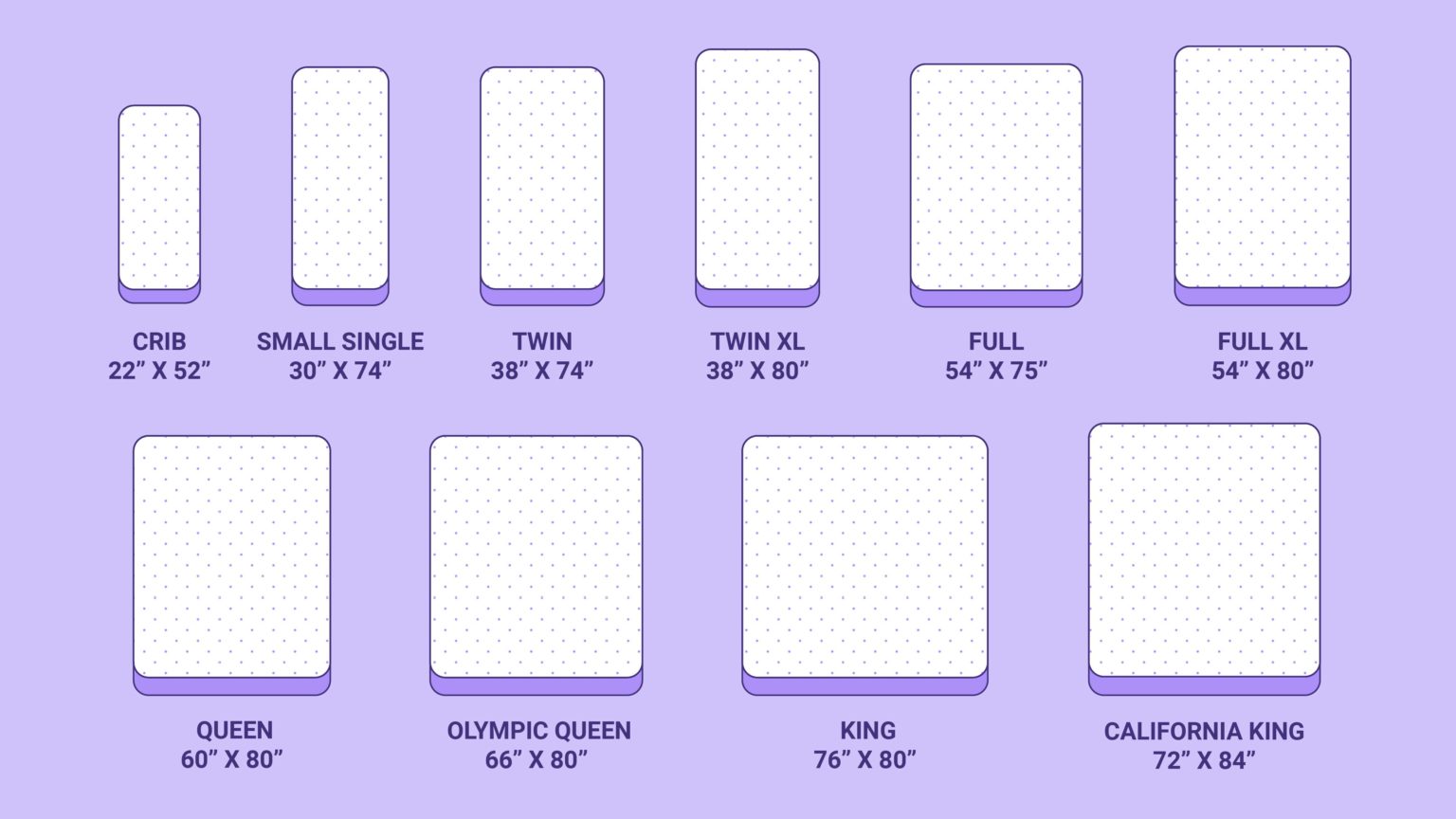 When it comes to designing your ideal bedroom,
mattress depth
is an often overlooked but crucial aspect. The size of your mattress can greatly impact your overall comfort and quality of sleep. With a wide range of
mattress depth
options available, it is important to consider various factors before making a decision.
When it comes to designing your ideal bedroom,
mattress depth
is an often overlooked but crucial aspect. The size of your mattress can greatly impact your overall comfort and quality of sleep. With a wide range of
mattress depth
options available, it is important to consider various factors before making a decision.
Body Type and Sleeping Position
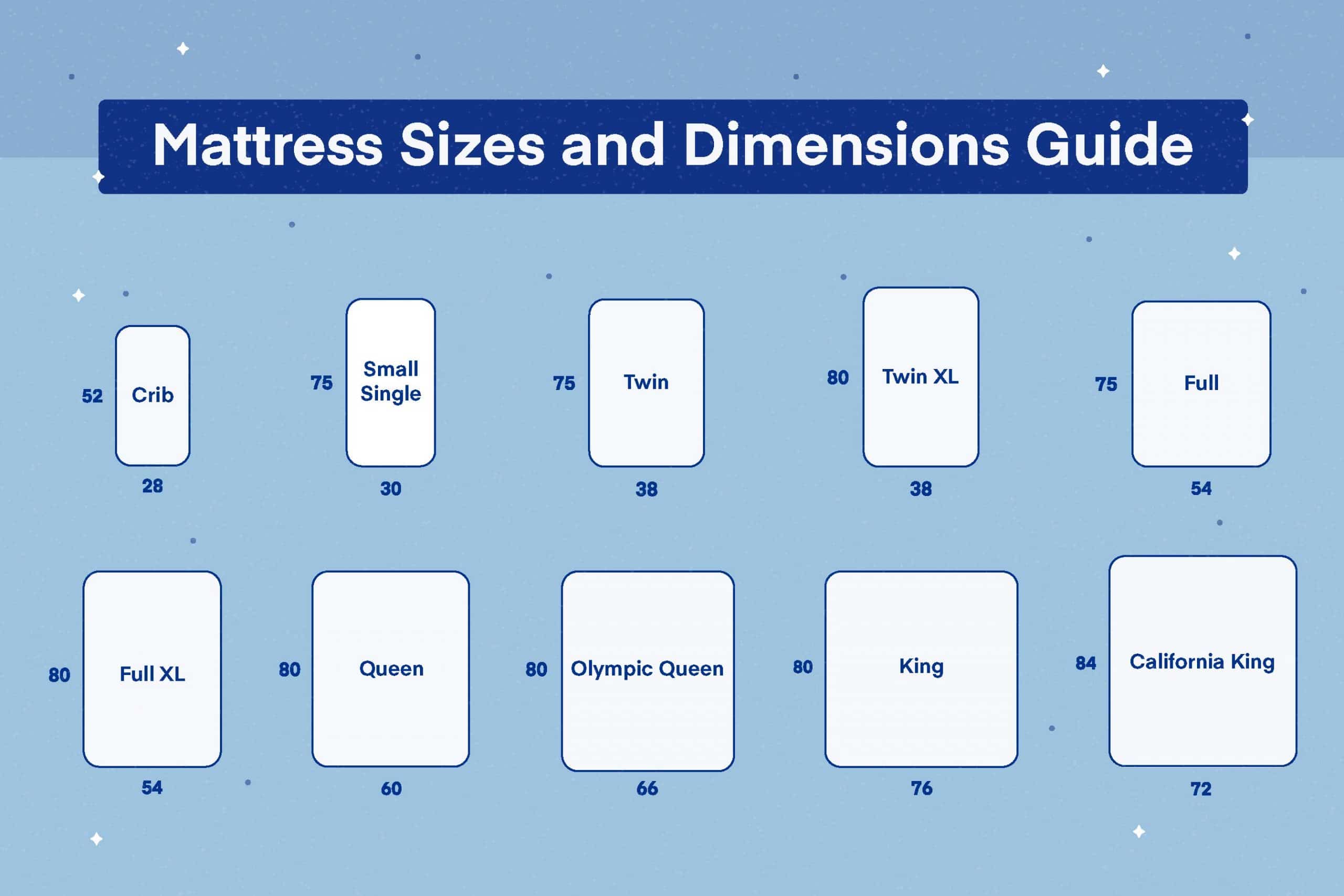 One of the main factors to consider when choosing a
mattress depth
is your body type and preferred sleeping position. For those who are on the heavier side, a thicker mattress with more support is recommended to prevent sinking and provide proper spine alignment. On the other hand, a thinner mattress may be more suitable for those who are lighter or prefer a firmer sleeping surface. Additionally, if you tend to sleep on your side, a deeper mattress can help cushion your shoulders and hips, while back and stomach sleepers may benefit from a shallower mattress.
One of the main factors to consider when choosing a
mattress depth
is your body type and preferred sleeping position. For those who are on the heavier side, a thicker mattress with more support is recommended to prevent sinking and provide proper spine alignment. On the other hand, a thinner mattress may be more suitable for those who are lighter or prefer a firmer sleeping surface. Additionally, if you tend to sleep on your side, a deeper mattress can help cushion your shoulders and hips, while back and stomach sleepers may benefit from a shallower mattress.
Bed Frame Compatibility
 Another important factor to consider is the compatibility of your
mattress depth
with your bed frame. If you have a platform bed or a bed with slats, a thicker mattress may be needed to provide adequate support. However, if you have a box spring or a bed with a headboard and footboard, a thinner mattress may be more suitable to prevent the mattress from being too high and uncomfortable.
Another important factor to consider is the compatibility of your
mattress depth
with your bed frame. If you have a platform bed or a bed with slats, a thicker mattress may be needed to provide adequate support. However, if you have a box spring or a bed with a headboard and footboard, a thinner mattress may be more suitable to prevent the mattress from being too high and uncomfortable.
Special Health Needs
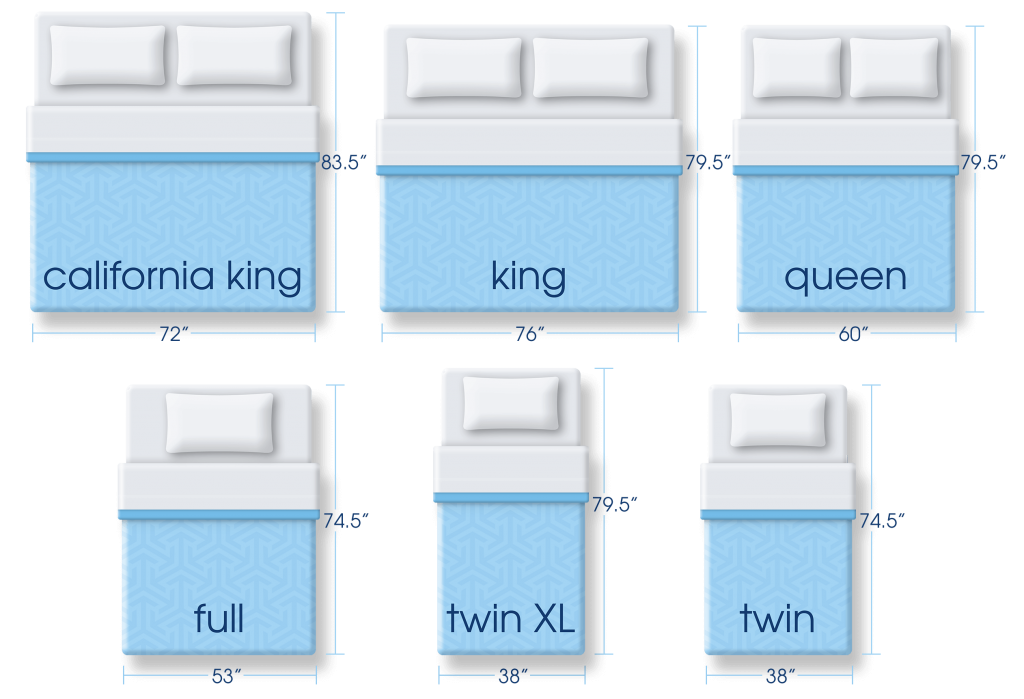 For those with specific health needs, the
mattress depth
can play a significant role in providing the necessary support and comfort. For example, individuals with back pain may benefit from a thicker mattress with more cushioning, while those with respiratory issues may find a thinner, firmer mattress easier to breathe on. It is important to consult with a medical professional for personalized recommendations based on your health needs.
For those with specific health needs, the
mattress depth
can play a significant role in providing the necessary support and comfort. For example, individuals with back pain may benefit from a thicker mattress with more cushioning, while those with respiratory issues may find a thinner, firmer mattress easier to breathe on. It is important to consult with a medical professional for personalized recommendations based on your health needs.
Overall Aesthetics
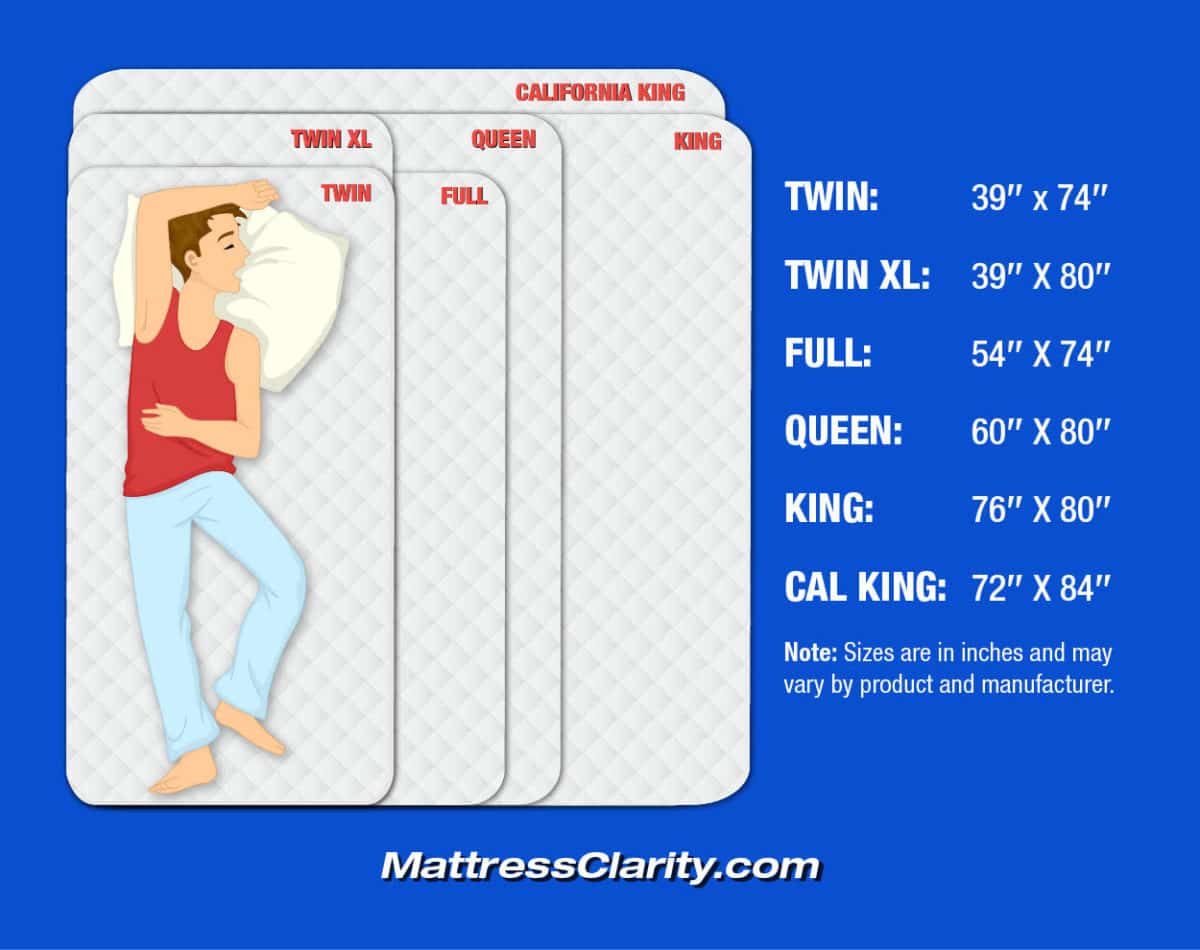 Lastly,
mattress depth
can also affect the overall aesthetics of your bedroom. A thicker mattress can create a more luxurious and cozy look, while a thinner mattress can give a more streamlined and modern appearance. Consider the style and theme of your bedroom when choosing the
mattress depth
to ensure it complements the overall design.
In conclusion, choosing the right
mattress depth
is crucial for optimal comfort, support, and overall aesthetics of your bedroom. Consider your body type, sleeping position, bed frame compatibility, special health needs, and overall style when making your decision. With the right
mattress depth
, you can achieve the perfect balance of comfort and style for a restful night's sleep.
Lastly,
mattress depth
can also affect the overall aesthetics of your bedroom. A thicker mattress can create a more luxurious and cozy look, while a thinner mattress can give a more streamlined and modern appearance. Consider the style and theme of your bedroom when choosing the
mattress depth
to ensure it complements the overall design.
In conclusion, choosing the right
mattress depth
is crucial for optimal comfort, support, and overall aesthetics of your bedroom. Consider your body type, sleeping position, bed frame compatibility, special health needs, and overall style when making your decision. With the right
mattress depth
, you can achieve the perfect balance of comfort and style for a restful night's sleep.
